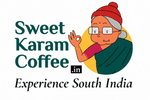When my friend/roommate jokingly asked me “what plans for diwali?”, knowing that none of our plans sound even close to interesting, I had no other choice but to join him with laughter. As I ponder over the options again, I laugh at how different my diwali means to me now. I wonder, “Is this what growing up feels like?”.
I, personally, love the night before diwali. Our family has this traditional practice to offer gods the previous night with the sweets and savouries that were diligently prepared that day and the new clothes that were bought for each member of the family for the festival. As a kid, I used to help my mom with the ritual of dabbing a pinch of turmeric on one corner of all of our new clothes before the offering. I still remember piling up these items on a wooden ‘manai’ or plank, as part of the offering. A special part about this ceremonial offering is the preparation of ‘nalangu’, a red colored concoction prepared by mixing lime with turmeric, which will be applied the next morning on the feet of each family member as part of the traditional oil bath ritual.
During my childhood, every diwali morning started off with me being forced to wake up at 4am for the oil bath or ‘ganga snanam’ as my paati/grandma calls it. She says, “it is believed that on this chaturdashi day, Goddess Mahalakshmi resides in gingelly oil and the water represents the holy river Ganges. So by taking a gingelly oil bath early in the morning, we get the blessings of Mahalakshmi and mother Ganga.” My paati starts off the ritual by applying ‘nalangu’ on my feet and by feeding me a betel leaf, sometimes with sugar stuffed. She then places 7 droplets of warm gingelly oil on my thigh while chanting the names of 7 of the great chiranjeevis and connects them. What follows is the oil massage which ranges from head to toe and a hot shower.
Another special thing that stands out to me is the diwali ‘marundhu’ or ‘legiyam’, which certainly deserves a mention here. As part of the morning oil bath ritual I’d also be fed a spoonful of this dark delicacy. It’s supposed to be consumed as a precaution to the food binging that follows later that day of deep-fried snacks and ghee-laden sweets. Essentially, it’s the best cure for the gluttony that is inescapable during this day of festival of lights. ‘Marundhu’ literally translates to medicine in Tamil. That’s because it is made with ingredients that have medicinal properties. The medicine is then flavored with ghee and jaggery to achieve the desired texture and consistency. The sweetness from honey and jaggery and the fiery spice from ginger and peppercorns creates a delightful gastronomical experience which leaves one gasping for air. This sensory melange almost makes one forget that this is supposed to be consumed as a medicine.
After relishing every Bakshanam made at home and also the ones received from our relatives, my family concludes the diwali night by watching the fireworks from the terrace or rooftop of our building. While none of this comes close to how I celebrate diwali now, I’m grateful beyond words that I had such a hands-on, interesting experience during my childhood. What were your memories ? :)
Have a wonderful diwali !
- Sai Kiran, Storyteller - Sweet Karam Coffee
[{"location_name":"Bangalore","postalcode":{"data":[{"pincode":["560003","560009","560010","560012","560013","560014","560015","560017","560020","560021","560022","560023","560036","560037","560044","560048","560054","560055","560057","560058","560066","560073","560079","560081","560086","560093","560096","560097","560103","560104","560105","560122","560035","560049","560053","560083","560087","560090","560091","562119","562158","560011","560030","560041","560069","560095","560102","560100","560078","560076","560068","560034","560029","560047","560031","560099","560114","560027","560001","560005","560008","560016","560033","560042","560043","560045","560046","560051","560052","560077","560084","560113","560006","560024","560032","560038","560075","560080","560092","560007","560025","560071","560111","560070","560062","560108","560109","560018","560019","560004","560028","560061","560098","560059","560060","560050","560039","560040","560085","560072","560026","560074","560002","560056"]}]}},{"location_name":"Mumbai","postalcode":{"data":[{"pincode":["380015","380058","380054","382424","380051","380007","382481","380008","380059","380052","380061","380009","380060","380005","380013","380004","382350","382330","380006","380001","380050","380016","380055","382418","382443","380027","380026","380014","382415","380022","382345","380028","380002","380024","380025","380023","380019","380018","380010","380003","380021","382430","390021","390007","390012","390019","390024","390020","390002","390009","390011","390022","391760","390001","390010","390016","390006","390025","390018","390003","390008","390013","390014","390004","390015","390005","390017","382470","382449","382480","382340","382475","380063","380053","380038","380057","382410","382428","382333","380011","380017","380020","380029","380041","380062","380210","380330","382211","382324","382404","382352","382442","382346","380045","382325","391410","390023","391740","391310","382405","382440","391320","391350","382427","380012","391750","391440","382433","391101","382445","391345","391460","391346","391347","391770","391775","391340","380049","391330","382435","382425","391430","391450","391520","391780","391745","110069","110092","110075","110017","110085","110070","110048","110019","110018","110034","110024","110015","110058","110059","110063","110091","110016","110027","110065","110049","110077","110009","110025","110078","110087","110010","110026","110045","110007","110088","110001","110029","110052","110008","110096","110064","110076","110021","110005","110095","110032","110003","110062","110057","110089","110051","110014","110060","110054","110068","110023","110037","110028","110022","110084","110012","110035","110033","110086","110020","110053","110041","110044","110067","110055","110093","110094","110042","110031","122006","110046","110011","110013","110066","110080","110036","110056","110038","110081","110083","110071","110082","110061","110004","110090","110040","110039","122001","122002","122018","122011","122003","122017","122009","122012","122022","122016","122010","122005","122015","122007","122008","122021","122014","122019","201301","201304","201305","201303","201307","201309","110119","110403","110506","110509","110105","110106","110108","110109","110110","110114","110116","110117","110120","110124","110125","110503","110512","110050","122004","110097","110079","110073","122101","110072","110102","110101","110103","110112","110301","110603","110121","110401","122505","122051","122050","120002","122203","122000","122055","122204","122206","122207","122208","122209","122211","122213","122215","122216","122217","122218","122219","122220","122224","122225","122227","122232","122233","122013","122231","122020","201014","201002","201010","201012","201005","201001","201017","201011","201007","201318","201004","201006","201003","201013","201019","201312","201313","201300","110098","111112","111120","110104","110107","110113","110115","110118","110122","110302","110501","110602","110607","122102","201302","122052","122506","122109","201308","201009","201016","201306","201310","201106","201102","400610","421201","421503","411028","411001","400612","411036","411017","421501","421306","400606","400604","421202","411019","400608","440009","421203","411006","440034","421302","411013","411012","421004","412101","411018","411044","412308","412307","421505","440015","440024","441108","411062","411011","411002","440027","440018","411042","421001","411022","421002","440012","440037","441122","421311","411024","441113","401304","421005","400609","400602","400605","400703","400705","400059","400095","400037","400708","400008","400010","400099","400709","400058","400614","400066","400016","400052","400089","401202","400103","401303","400022","400012","400054","400049","400057","410209","400061","400005","400060","400055","400088","400051","400091","400069","400042","400013","400018","400028","400025","400098","401208","400070","400074","400056","400102","400014","400701","400083","400006","401203","401305","411045","411060","411033","411027","411038","411007","411048","411041","412207","411015","412105","411037","411040","411030","411061","431001","440013","440010","422009","422013","425001","416410","401201","401209","400063","400086","400026","400004","400007","401105","401101","411021","400607","400601","400615","421204","400603","416008","416012","416003","416005","416002","416007","416004","416001","410203","410401","416013","410206","400706","410210","400047","400105","400046","400048","400072","400104","400011","400017","400033","400043","400031","400027","400084","400023","400039","400085","400032","400035","400053","400101","401107","400071","400067","400080","400064","400050","400076","400078","400068","400093","400092","400081","400079","400077","400075","400001","410218","400019","400034","400024","400020","400082","400015","400030","400021","400094","400002","400062","400029","401301","400090","400087","401104","401210","400096","400710","416119","411014","411057","411046","411004","411020","411016","411058","411047","411052","411009","411051","411043","411008","411032","411035","412114","411003","411005","411039","421003","411023","411031","421304","411034","421103","411026","411029","421502","421301","411056","411025","411053","411010","412001","400208","421032","421504","421506","411050","411100","411107","411220","411230","411406","411049","411054","411055","411501","412309","413543","412302","400206","400207","400210","421307","421405","420421","440022","440025","416416","414003","414001","414002","414110","414005","414111","414112","414004","431605","431003","440001","422101","431005","422011","413003","402201","402209","440030","422003","422010","402205","402206","402203","422002","413001","440033","422007","440014","431602","422005","431002","440017","422401","413002","413004","431601","422001","441111","440036","413006","440023","440026","440003","440002","422006","422008","416415","440007","413005","431008","431007","431010","440008","440032","440019","401501","401506","401503","431006","442401","442402","442404","442507","442406","442403","442908","440016","440006","422206","413007","425003","416112","440005","441001","424001","424002","424005","424003","424004","424006","425002","416122","441110","431604","422207","441614","441601","441911","441216","441603","441605","441919","441609","441611","416006","440004","440035","422209","413225","413255","410202","410204","431009","413512","413531","410507","412109","416011","416234","440031","441002","440028","440029","440021","422221","422501","422012","401404","401401","416414","416406","416436","402107","402108","415612","415639","416541","415570","431201","431004","431154","431210","412202","400073","400410","400041","400045","400106","400108","400109","400110","400111","400112","400113","400114","400162","400167","400202","400401","400901","401016","401100","401200","410211","410213","400038","401207","401302","410107","421006","421507","410217","400097","442001","442002","442004","442107","442005","442103","442104","445001","400065","400003","400009","425132","425135","425105","400036","425117","425120","425126","425004","425109","416019","416022","416014","416015","410208","416123","416125","410005","410062","416009","416236","416216","440011","425511","440020","431603","416425","416437","416144","416423","416435","413010","400700","410200","410219","400611","421205","400613","421101","410506","421206","413130","421308","421305","412115","400218","421300","410105","411000","411208","431302","414006","414307","402204","402208","402207","412201","421601","421603","421604","431136","401504","401103","442917","413213","422213","424302","424301","424311","441902","441606","441801","441613","431133","422222","421102","413520","413527","413541","410405","410403","410301","410410","431606","422214","422502","401402","401406","401400","401505","401403","416306","413008","415616","415619","415626","415618","412214","410303","401205","442003","442006","442111","441118","442102","445102","445201","445401","445002","445101","444708","425104","425110","425102","425116","410221","416201","441115","441102","441404","440104","422215","422301","422302","416401","416407","416304","416409","416137","416426","441923","425437","416228","414601","424318","424308","424307","416229","412110","415806","431115","431102","431101","422201","413132","413228","441916","416224","413105","415102","401106","400702","400707","401602","416010","410201","400704","401206","411125","412111","412106","413515","413513","413101","444001","444002","444004","444005","444308","444003","444101","444108","412411","425401","425111","444602","431517","431526","410504","410503","444601","412407","443201","445103","414202","414203","442701","442901","444606","444607","444603","413102","413133","413116","413401","413411","413502","431122","441904","441906","441909","444605","413503","425201","425202","425312","425326","425519","425125","443001","424101","442603","444604","442903","415605","415604","425107","425123","425434","401601","444713","444706","444803","444705","413801","414702","414709","414703","413802","431717","431723","444709","445203","445202","422004","442605","416502","416220","416504","416505","416536","431514","431531","431109","445301","442505","416509","416508","442301","442304","444701","416115","416109","416145","416117","416203","422403","421602","412219","444129","443402","431203","443204","431200","413201","424206","424209","416101","416103","413507","431123","416602","431103","424312","431146","415110","415539","415124","415109","415119","444105","441302","444303","444312","412801","412802","412206","412205","415709","415722","423601","423603","413208","415801","422306","422303","412805","445205","423203","423103","423105","443101","444403","431131","423104","431509","443301","444905","444812","444914","416209","416219","431709","441224","412216","444107","402109","402106","410205","402116","443405","425412","415521","413606","416520","413501","413601","413569","431105","431107","431108","431138","413304","413305","444805","431401","431402","431515","431528","414301","431204","415206","414102","415523","425523","442302","442101","445204","413705","410505","442905","442706","441106","441104","441406","416211","425306","425502","425501","425509","425508","441802","441804","441808","444608","444609","444801","422605","413307","401102","412303","412301","423301","423305","415001","415002","415003","415004","415005","441501","441107","441117","431503","431505","431506","425409","425448","444203","416114","423109","423107","425405","412210","412208","412209","413701","414011","413709","441222","422102","422113","422103","422112","412203","401606","442201","442204","416312","416321","441913","441912","413517","413563","445213","445206","441203","441920","415506","423704","423701","413402","431511","431512","415311","416310","415304","415305","415307","412803","445304","444906","444909","444505","444503","444508","423401","411412","416301","416405","402104","402103","402308","410222","410101","410207","410220","421312","401204","412112","413514","413216","413108","413103","444109","444104","444401","444302","444202","444103","444819","444125","412410","412412","431124","431519","431523","412405","421605","444301","415101","412103","413104","413117","413582","431126","441905","441924","431807","431713","431801","431802","431806","425309","425308","425524","441206","441701","441205","441207","441208","443105","424102","424103","424106","423101","415602","415603","401607","401701","415712","415713","415706","415720","444728","431718","416611","416612","416805","431809","431710","422202","416551","416526","416506","416503","416501","431536","431720","423702","415617","415613","431212","431127","442502","442702","442307","431513","431705","416146","416110","416121","416143","416116","422402","431206","431208","443206","443203","413204","413205","425114","416404","416412","416108","416134","410502","416205","416230","415105","415103","415106","415111","415104","414401","414402","413203","441304","441103","441305","441306","415716","415710","444904","431804","431811","423602","423605","415501","415503","415504","415524","413250","413252","416701","415803","422308","422304","431714","431708","431707","402309","402301","431721","443102","425310","416606","416607","413215","444402","431507","413111","444902","444707","444704","431715","431716","421401","444110","402125","443404","425418","414105","414603","414602","414607","413544","413521","415526","416812","416528","416628","416521","416603","424201","424105","431137","431148","445302","444808","444806","444809","444810","444827","431540","431516","431144","414302","431207","431501","431209","415205","415209","414113","414106","441910","441903","441908","441201","442306","445216","445209","445215","415511","413716","413706","416704","416702","416713","410513","412404","416221","416208","425506","444506","444510","441702","441806","441807","424304","444911","444802","444901","415804","415611","413309","423501","423204","415519","441502","416510","416514","425410","425422","414503","414502","425404","415401","415405","413719","425428","412220","412211","414701","413726","414107","413703","413702","415634","415703","415702","415705","413715","413720","413717","402110","402113","402403","431112","422210","416801","416810","416314","416408","416303","416307","416317","441915","441907","431719","445207","441204","415502","415527","415510","415508","423703","445402","415012","415516","412804","415515","413109","442503","445303","431704","431701","444907","444504","444507","402406","444718","416308","416302","416313","441114","410501","413106","416419","402111","402112","402117","402120","402101","441225","424204","421303","412108","410406","444006","444311","444102","422601","422604","422610","410510","431741","431132","423110","444702","444404","431205","416118","416138","416111","424205","416402","412409","410511","412401","416609","416610","431104","431147","414403","431805","431810","423604","416516","415643","416712","415807","422305","412806","402306","402307","415213","402302","402115","402305","423205","423212","423208","423201","423202","443103","416608","416614","416616","413221","413310","421403","413605","413602","425411","425416","414604","414605","413516","412305","424202","425115","413303","414303","414103","431211","414505","415537","415805","416709","441809","424306","424303","424305","422603","422611","413714","412104","423213","423303","423102","423302","441101","416550","425424","425444","425406","424309","425421","413728","415728","413739","431135","431114","442203","416703","413519","441202","441210","431116","415309","415310","423403","431111","431542","413211","416311","416403","425415","425413","422622","443302","422620","431151","401605"]}]}},{"location_name":"Origin","postalcode":{"data":[{"pincode":["600001","600002","600003","600004","600005","600006","600007","600008","600009","600010","600011","600012","600013","600014","600015","600016","600017","600018","600019","600020","600021","600022","600023","600024","600025","600026","600027","600028","600029","600030","600031","600032","600033","600034","600035","600036","600037","600038","600039","600040","600041","600042","600043","600044","600045","600046","600047","600048","600049","600050","600051","600052","600053","600054","600055","600056","600057","600058","600059","600060","600061","600062","600063","600064","600065","600066","600068","600069","600070","600071","600072","600073","600074","600075","600076","600077","600078","600079","600080","600081","600082","600083","600084","600085","600086","600087","600088","600089","600090","600091","600092","600093","600094","600095","600096","600097","600098","600099","600100","635109","641041","641035","641004","625016","641005","605008","625020","605001","625014","641045","636007","625001","641025","641006","620006","641002","641018","625007","641046","625003","641029","635126","620001","641010","641028","625006","625017","641001","641038","641014","605009","638002","636008","620017","641016","625018","625002","636016","632002","636004","641048","641015","625009","641009","605006","636001","620021","635110","620002","641012","636005","632004","641037","605005","641034","638001","641036","641030","641027","605007","620012","641017","620005","641024","605003","620003","638004","625019","636002","620019","641011","605004","636003","632001","625010","636006","636009","620007","641044","625012","641020","641023","641022","641026","638008","638009","625011","620008","620014","641043","625004","636015","620004","620018","641031","625005","620023","641003","641047","638006","636010","620013","620020","638007","638003","620011","620010","620015","641033","641039","641013","636014","620022","625015","625021","603002","641042","631501","632006","605602","632009","624001","603001","632007","609602","632401","632014","636701","639002","624005","639001","641019","639004","624004","624003","636030","624002","639006","639005","635002","636012","639007","637002","639003","638010","636011","632402","636702","636013","632403","625008","605002","600101","600102","600103","600104","600105","600106","600107","600108","600109","600110","600111","600112","600113","600114","600115","600116","600117","600118","600119","600121","600122","600123","600124","600125","600126","600127","600128","600129","600130","600131","601301","601302","601303","602024","602101","602103","602107","682020","575006","682017","570017","575004","575002","682019","685561","575001","583101","570023","506002","570008","575003","682025","682011","570026","682016","682018","695014","570011","570022","575008","682035","570002","583104","533001","570019","682033","570016","688524","688001","688005","688011","688009","688003","570020","695002","673002","695005","682028","570009","695035","691001","570004","570001","688002","688012","583102","680005","682031","682032","695001","673001","682013","575005","570018","670002","570015","695006","673004","695018","695012","581326","570007","680002","680004","680003","682015","583103","591304","570012","570010","587201","587101","587103","670001","691012","695023","574219","574211","574231","691009","570014","680022","680001","585327","586203","691004","676121","590006","590001","590010","590016","590019","590009","590003","590005","590008","590011","590018","590002","695036","695034","506004","691003","691002","575007","581320","585401","585403","585402","586101","586103","586104","586102","691008","570003","570006","577522","686101","577213","577101","577102","591201","591317","585225","585228","585229","581325","682029","691013","577004","577005","577002","577001","577601","577006","581123","577003","570005","580008","580004","580007","580001","580009","580003","580002","580011","580006","580005","533255","682024","682026","682023","682012","534001","534002","534003","582101","582103","582102","670003","691010","583227","676505","676519","570025","570021","591307","585102","585101","585103","585105","585104","585106","583212","695033","573201","573202","581110","577217","577223","581334","582118","577527","577418","583201","580023","580021","580030","580031","580029","580025","580026","571105","587125","586209","580020","580024","580028","673122","673121","505001","505002","574104","581301","581302","671121","671315","685508","690502","690101","695017","695016","507002","507003","507001","577134","583231","686001","686002","686003","571602","581343","576201","682030","682037","571234","583277","571201","509001","509002","576104","576101","576102","576213","576106","522002","574227","586212","577132","571301","570027","582208","560088","560089","678001","678004","678003","678002","676122","689645","574201","584101","584103","584102","581115","582209","577401","573134","585222","577201","577204","577205","577301","577202","577203","581355","584128","581402","581401","577139","574239","534101","534102","670101","577432","685584","676101","689101","585202","585201","582114","581359","533007","570013","570024","506008","500001","500002","500003","500004","500005","500007","500008","500009","500010","500011","500012","500013","500014","500015","500016","500017","500018","500019","500020","500022","500023","500024","500025","500026","500027","500028","500029","500030","500032","500033","500034","500035","500036","500037","500038","500039","500040","500041","500042","500044","500045","500046","500047","500048","500049","500050","500051","500052","500053","500054","500055","500056","500057","500058","500059","500060","500061","500062","500063","500064","500065","500066","500067","500068","500069","500070","500071","500072","500073","500074","500076","500079","500080","500081","500082","500084","612001","605010","627011","606601","627007","638012","606603","613007","638011","641007","605013","613001","605110","627002","625107","607402","606604","641109","641008","638452","641402","635103","613004","641021","638301","613005","621216","627001","638183","641049","641401","605014","636308","613009","612702","621112","641114","638476","605011","638107","605104","636201","641101","641103","627006","641668","612002","625402","613002","627004","641108","635114","605102","637502","613006","627005","632008","605101","613401","627358","632055","632104","641407","612103","625022","636203","627003","638505","638316","638455","638005","612101","605106","636103","620009","627357","638453","638458","625501","605111","613501","613403","621005","632011","641111","641201","638102","612102","612501","612204","614201","636106","636307","620024","621703","627356","604601","638456","612104","614203","614205","614206","625023","625221","605107","636139","636204","613003","622515","621213","621712","620026","621218","627010","627351","627151","627352","627353","641406","625531","603204","635001","631502","629001","624601","602001","637001","635601","641602","607001","626123","628008","642126","628001","642002","626117","641603","641654","626001","621212","628002","611001","643001","623501","626101","609001","630002","631001","642001","608001","636903","606202","628501","623526","635802","624101","614001","641301","629003","637408","624619","641664","632513","635112","607801","607803","637211","641104","638701","622001","626203","638052","610001","628215","603102","607002","629004","641062","626189","627811","627401","632301","641652","625513","636705","628502","626125","636455","632503","641663","641607","607303","636302","603110","621010","602025","635751","638501","636401","614601","637205","603104","631209","636102","643101","630001","641305","629002","636502","622003","628003","627117","621704","625516","607308","637101","638401","605757","602002","608002","624202","608301","641302","629302","629501","638111","607106","638402","631102","626124","602003","641110","631003","603406","603308","604407","635205","632602","630302","642109","629179","611002","629901","643004","606106","623503","627756","625532","627425","636104","638656","621211","629163","636403","642004","637504","609117","627809","627859","625601","625512","614713","629251","637214","637503","638312","629702","606201","625521","609609","643217","635115","621215","641032","621316","629176","629193","636501","636453","624401","636809","609403","626102","638459","626130","627808","635851","626204","627428","627416","641666","627120","629401","607003","624302","632517","638151","635104","641050","636451","626108","637301","627806","629166","629167","630211","635752","631002","629704","643202","625533","638657","635804","635810","606206","630003","630106","639008","638105","628503","635120","635203","629161","629177","629165","603306","636454","636402","611102","637013","607105","638057","642129","642005","642006","632515","609108","609111","627818","627751","614404","629802","628216","637209","635852","606107","627109","605108","627423","636115","603111","608502","607005","625518","625522","635111","636803","624301","628704","628612","632101","632106","609307","609604","609606","639114","639112","625703","621315","621306","621307","609801","609003","625106","636404","636452","607302","607807","607802","636808","641658","614701","606105","642003","642104","632405","606401","638103","609110","630611","627759","613204","614103","610109","629252","629159","629175","628202","628204","635701","631203","628004","628902","605601","605401","627412","627413","635814","638314","638315","632316","621714","626112","626113","636141","629403","629703","629402","603101","624211","628623","628617","632601","639205","636905","631402","609303","609605","609607","630303","639108","624103","643201","628552","635204","639115","639104","626126","622102","629169","629160","629173","629153","629170","611104","629201","629852","629502","637405","637409","643002","628103","614704","621108","642107","642103","642110","622407","622005","614809","632406","632501","637505","606402","637303","637102","637103","627856","625534","614711","614102","614101","629804","629164","629156","628151","635854","628005","628101","626003","627426","627851","638110","638457","638058","638313","638116","635808","635811","638311","638502","631151","631004","632504","606903","632311","621713","636105","636109","629701","627106","603107","636112","625530","635301","624307","624802","624308","628207","635809","632201","635803","635303","621804","632059","632204","631553","609311","609312","609601","639136","639101","621205","621207","626133","614620","629151","629154","629158","629171","629155","629195","609301","609203","609309","625122","636111","636406","623704","611111","629851","629601","629602","637014","637017","637021","607804","624616","624622","643003","628401","628402","636806","614613","614903","614602","621730","636810","621113","621115","628905","623603","642007","630502","622002","622505","622506","622004","614810","626188","626111","627757","626122","626110","623512","632506","632509","636301","627953","627855","637105","638451","638454","638506","638503","609102","627802","627860","627415","625603","613104","605759","614706","610105","610004","627657","629809","629202","629204","629157","629174","621214","604305","604302","628203","628212","628213","628219","607202","635206","624215","625218","627103","627116","627102","628907","606003","626002","627435","627551","627417","627418","627453","627414","627853","635753","635812","635754","638302","631201","606905","632317","632326","632315","626118","626129","626134","626159","626105","626107","626004","636117","636119","636108","638460","627114","631701","607301","625525","625556","638661","638672","638673","635202","624054","624220","624206","625602","624705","628601","628616","628211","628618","628251","632603","639202","621803","621806","631503","609313","609703","630006","630004","630005","630307","639116","643214","628714","628952","628721","635108","621204","621208","639106","621202","621203","639107","608306","608302","626138","626132","626116","626149","626190","626141","614619","614621","614630","629101","629188","629194","629152","629168","629162","629172","629181","629183","629191","629197","609103","609202","609201","609205","609401","609314","609118","636202","636113","636458","636457","611003","611108","611110","629301","629303","629304","629305","629707","629807","629855","629902","637020","637019","637212","637003","624704","624712","643005","628304","628102","624610","607103","623719","609608","609306","609402","609404","609405","609701","609503","609603","621116","622304","622302","613301","623604","638053","642114","622401","622408","622402","622403","622409","622411","630410","630201","621314","622504","622101","622104","622502","622501","614707","626121","627760","623531","623527","623524","632512","632404","637406","627951","627755","627765","606208","605802","637302","638462","638054","626205","626202","632505","609104","609112","609115","630606","627861","627807","627852","627858","627813","627810","627817","627814","625547","625562","625605","621706","613105","605756","605752","610204","614702","614712","614716","614806","610203","614714","614703","614715","609502","610102","609504","612610","613701","610003","610101","611101","627104","627654","627651","627659","627652","629102","629178","629189","629203","629803","629805","629808","629810","604301","604306","628217","628201","628205","628206","628209","628218","628229","637215","637501","638812","602004","628006","628214","628007","625529","635207","635307","635201","635304","625205","624201","627105","627113","627101","627107","627108","627110","627111","627115","627131","639113","614211","612302","614207","625201","625702","605012","636140","613008","613010","614202","614401","620025","620016","627451","627202","627354","627854","627008","627009","627012","627201","627152","627604","632003","632005","632010","632102","632013","632012","517501","524003","520010","524002","517502","520008","517507","520001","524004","522004","520007","524001","520012","520003","522001","517503","520002","520004","520013","522003","560063","560064","560065","560067","560082","560094","517504","560106","560107","523001","517001","518501","572102","515801","516002","516360","562114","561203","516001","563101","522201","518301","521001","571401","572103","515201","563114","523002","516003","562109","563122","563125","572101","562160","572201","571426","571313","561208","563115","577598","571440","523316","572105","572107","573211","562111","516004","573116","571438","563102","520006","518503","603048","603103","603112","603202","603203","110002","110006","530017","110030","506001","530016","110043","682021","110047","530013","700156","700064","504001","700019","530003","504002","682301","110074","700029","533003","700084","691523","691554","689695","700028","689648","691555","700091","700107","695003","700020","700027","700040","691551","691525","700094","700053","585212","700039","585301","700026","700136","700103","700017","700099","700046","700135","700075","700047","700068","700031","700016","700078","530026","700042","700054","700157","700102","700014","700056","695010","695013","700055","682002","678612","700059","678571","678642","678613","679512","700032","700061","700034","700106","678641","700033","673016","695004","700104","700008","700160","700006","700030","700015","700060","700035","700070","682038","700074","682306","700045","700082","700159","700052","700036","695009","530007","700023","700161","700038","700009","700010","700086","700025","700057","700041","682305","700071","700092","533004","700063","670571","670581","585311","700148","585302","695024","688522","700067","700050","700097","688013","688539","688561","533005","688006","700150","700065","688521","688007","682036","688538","688523","700101","688582","700095","700048","688525","700012","700089","688014","530002","700096","688564","683104","700037","700001","688004","700105","688530","688541","700007","700051","700004","700002","700043","700080","700021","700073","700108","682006","682005","683102","683101","683572","683574","683501","683108","683544","683511","680734","700149","700049","683573","700090","683547","700072","700083","700005","570028","683502","683579","700003","700013","700079","700076","700058","700011","680306","700022","700066","700134","680006","680101","531001","700151","700158","700154","700153","570029","700081","700093","121001","678682","121002","700146","678683","700152","673006","678541","680020","530001","530018","682003","670012","670142","700018","700024","700077","700098","680007","700100","121003","670307","670006","700085","673009","673007","695020","530020","575018","574199","574153","700062","121004","700147","533006","670011","700044","695304","695101","695104","695103","695605","695317","695305","695102","700069","700087","700088","691306","691305","691307","691322","673005","691519","679321","682022","682307","683503","682040","695029","695027","587102","591102","530024","711106","533002","711204","711203","673631","711107","682312","682309","682508","682039","695501","530009","530032","121005","121006","670141","691016","673010","673011","530008","506003","700144","382210","382220","382213","670005","670004","690525","690518","682001","682010","682008","591103","591124","590004","590007","590012","591113","574240","574214","574216","695032","695028","680581","573115","530012","585328","670007","691011","676503","575011","576228","581350","576214","581354","581421","396170","396171","396150","695121","695038","534201","530014","506009","586109","691571","682007","682509","700140","396321","396521","695025","530011","581106","680307","680732","691019","691014","686102","686106","686535","686026","575028","577243","670702","670703","689547","689126","689106","689121","689506","689124","689510","689511","689123","689122","689125","689109","695030","695502","577111","591313","591213","591244","686532","686533","686531","534460","680503","680501","577501","121007","396210","670594","670010","670018","670009","682009","691021","691572","691576","691006","690542","676303","571124","571101","562110","580114","700145","533262","679329","679330","679328","682041","682027","682034","534007","534005","534006","582116","582205","509125","534198","670602","670014","382001","382423","691301","673032","673635","591308","591306","571213","581329","695007","695021","689622","688562","690103","690104","690511","690105","689624","562112","583131","506007","506005","577530","577230","581348","581342","581341","581361","583203","583234","583228","583202","711102","711101","711104","711302","711109","711403","711103","711108","711411","711105","711405","711113","711114","580032","571114","685606","685602","685603","587118","586207","680121","577528","121008","587301","587311","670008","670502","670604","670612","585310","690524","690521","691334","690573","691005","691020","691577","673634","673638","673636","577228","679324","577124","571130","695573","695572","695575","382721","382725","673123","121009","503111","686664","670301","670331","678631","678633","574108","686502","689585","671531","671123","690110","690526","690106","690558","695011","695582","695301","695122","695123","695019","695022","695031","582207","587203","682505","682014","507004","695601","695602","581206","680664","587116","577126","507101","509103","691506","691507","691505","686008","686632","686507","686631","686016","686039","583134","673305","689643","689549","583135","685509","576222","576221","576225","576224","576226","576235","682308","682310","682042","121010","571107","583279","670643","121012","584122","584115","587312","673310","670672","673311","700137","700138","509208","581400","581396","504208","533261","576103","576105","574118","576108","576119","576210","576218","576120","576115","522006","522007","584123","691304","690544","691007","691581","691584","577535","673637","673647","586213","587313","581349","685612","686673","686661","686670","686668","686672","521228","575010","508001","531116","582201","695564","695542","695543","685553","685552","562123","678506","678508","678507","695125","679331","671313","591237","503001","683513","683518","683517","683519","683516","521201","521202","686575","686578","686121","678101","678013","678102","678005","678008","678007","678006","678011","678701","678651","678623","678731","678501","678012","678622","678014","678702","678594","678503","678621","678009","678010","678611","678531","678015","678018","678502","678624","678019","678020","678707","678504","678592","678558","678732","678553","534260","534267","534265","676521","695608","695141","695603","695143","695146","695604","695311","695145","506164","689691","689501","689653","689505","689646","689647","689698","689671","690509","679103","679301","679302","505172","534123","679322","679323","683542","686692","686691","686693","680502","506013","574202","574203","584134","533101","533106","533102","573133","573102","591123","582211","679303","679306","679309","679307","679533","591126","591117","509216","585223","571236","501504","577427","577222","577302","577227","679521","679501","680582","679102","679104","679522","679101","396230","586128","523101","523274","581403","583121","577429","532001","577112","577123","673592","533464","533463","574154","574146","574150","508213","534211","534320","534134","562130","678583","678582","670102","670104","670671","670109","577426","685585","679577","676302","676107","676104","676551","689103","689110","689621","689107","689113","689102","689626","689105","689591","689104","574106","574111","574105","574116","574117","574115","576122","575017","575020","575009","673101","396001","396125","396020","396035","396191","396195","695607","695615","695606","571218","521215","535002","535001","583236","576112","121013","121101","533008","670603","670144","670013","670591","670015","670017","691018","691017","673018","676304","673642","695127","695040","695037","695039","695041","695099","680504","680021","530021","530023","506010","506012","500085","500088","500094","500095","500096","500097","501323","500098","500123","500178","500083","500195","500006","500409","500605","502325","500890","500021","500089","500090","500087","500091","500092","501218","501510","500077","500031","501301","500991","502001","502324","502205","625706","641105","641659","635117","641112","638104","605501","612602","612804","605502","638115","609804","612701","625104","636601","636122","613504","638154","635116","614208","614625","632057","641040","602105","641604","641605","641653","630561","641601","641107","641606","643212","601206","606001","631552","603108","623517","601203","641687","601204","637401","639117","632508","643102","600067","601201","602106","603109","614804","638051","604408","603319","624615","635113","631605","631561","624710","623707","638056","606803","614616","603303","636116","607006","602026","637015","638182","608602","604202","639201","638109","635101","608701","607108","637018","602117","635602","642128","635805","631006","641655","625528","601101","632519","631601","638152","603301","637207","636304","630702","609501","621103","638055","626131","602109","627857","621651","604102","637202","630205","642113","606701","627501","642127","641697","631210","632502","632313","607109","607004","607401","625526","636351","624303","628210","631702","630104","635121","604303","609808","603305","638660","607104","623701","642123","623522","623523","623518","627862","606708","606707","631205","609109","627803","638751","641665","602021","610002","642122","625207","603403","637208","635801","638512","638327","638101","635807","638504","632531","631005","632314","621715","621707","626106","636107","606801","604402","608501","606301","606303","643213","625524","625540","624304","624709","628801","632103","635806","612904","632202","606203","631551","631604","630301","630314","630208","630108","612502","609807","608304","603201","625109","636503","623601","624614","636309","641671","630709","614612","614623","622301","638112","642202","622103","622412","622202","622303","626139","623536","623521","623529","637407","637104","631301","630610","626127","626128","613201","613202","605758","623525","610104","627118","621001","603307","604307","635901","638752","602023","606305","625514","605402","605105","606304","627601","627602","627452","627603","627421","627422","635815","641670","631204","631212","631101","632510","631051","632518","632318","604504","632312","632319","606907","621705","628223","627121","627124","629504","603405","631606","604401","604409","632511","608702","608704","621110","625538","638703","638702","636305","636354","636703","624314","624008","624009","624007","624006","624219","624701","624209","624708","624702","624707","628613","627355","628620","628619","628622","628751","628752","628802","628614","628615","628621","628851","604151","604205","604201","643211","632608","635813","624706","639203","601207","635302","612901","612903","632115","632516","606204","631603","604410","602108","612205","609308","609702","630305","623001","630310","630102","630101","630103","630107","639109","639118","624210","624104","624108","627713","628716","627702","635122","639102","621006","639105","621305","621313","621302","621310","629190","609806","609305","609302","603309","624402","625101","636118","636142","641102","641113","636303","623711","623712","623703","611117","611109","629603","607805","624711","624612","636306","628104","628301","628105","638108","607112","607102","614723","614906","614705","606111","621719","609805","621109","621104","621708","614614","614628","626114","642101","606906","606751","630405","621308","630309","630501","630210","622406","614618","622209","622404","626142","626143","626137","627764","626154","623537","623532","623514","623539","623520","632507","632521","632520","637412","627754","627724","627954","627956","637107","626201","631206","631304","631303","631202","632514","631302","631207","631208","609113","609114","609107","609105","609101","630560","623608","626119","602102","635125","627804","627805","627812","627431","627436","625520","625536","613203","613602","613103","621652","605754","614710","610207","614629","623406","610106","611105","627119","628703","628653","628656","628702","629253","629806","621011","621012","604101","628208","637203","637210","637201","637304","622503","635651","638202","628152","628221","642207","642205","625527","625535","625705","606706","606709","606705","625214","627133","627112","627129","637213","638181","628901","607201","605301","606302","626104","625701","609810","612402","612504","614210","612703","624205","605109","605652","613502","613503","613205","613402","614904","621111","621009","627502","627359","627301","627361","627051","628252","606752","606754","632058","632105","632113","632114","160015","160020","160023","160017","160031","160060","160008","160026","395007","395009","360005","360001","360007","388001","361008","395010","395001","395003","361001","395017","361005","395005","364001","389151","361006","388120","388325","364002","387001","395006","360002","395002","394210","360006","395004","360004","360003","361140","394510","395008","388450","361003","388121","387002","394230","361004","395023","388540","394221","394107","360024","364004","361007","387411","360021","388122","388320","364003","364005","364006","396445","392001","370001","384265","393002","394601","360575","363641","389001","362001","385001","384002","394650","393001","392011","385535","383001","365601","384001","363001","370465","392015","370020","388620","383315","364290","360311","363621","361305","396424","360577","365560","384170","360490","384315","394185","364710","370203","383430","362220","385340","362560","384151","382460","388430","385210","394670","364140","362266","393010","394116","384210","387355","384240","360050","362003","362004","362002","362225","388630","363421","370615","385520","360576","364515","388220","388210","382870","143001","141001","144001","160062","160036","160047","160055","141002","144003","160019","160071","160059","141010","141003","141008","160022","144005","144022","160002","160014","160009","160012","160011","144009","160018","160030","144024","141004","141006","143006","160010","143002","160016","144027","141005","160001","144007","144010","144006","143003","143005","147001","144023","147002","147004","143516","143416","143115","147003","160061","147105","302021","302017","342001","305001","302004","302001","302012","342008","342005","302015","302006","324005","302018","302039","302016","324001","342003","342011","302033","302002","302026","324002","324009","305004","302013","324006","324007","302003","303007","342013","324010","305002","302023","324008","305023","302007","302024","302005","305003","305005","305007","302011","302025","342002","305021","305006","305008","305009","305024","305025","305022","302008","302010","301001","342004","322201","301701","302031","307001","313003","313211","335501","335512","342601","335701","305624","332301","342902","303503","314025","331507","302028","301030","313205","333026","304021","301026","325202","303303","324003","324004","321608","332713","303103","331023","313027","301002","303301","311021","325220","332311","335523","335803","345021","335524","332715","332404","341306","313013","250001","221005","282005","221001","221002","282001","282007","250004","221010","208016","273001","282002","284001","250002","284003","208017","208011","221003","208005","221007","282004","208025","208027","282010","284002","273010","208007","208014","221004","273008","208006","208024","273013","273015","282003","273003","208021","208022","208004","273004","208026","208010","208013","208020","273014","208019","282008","221106","282006","273016","273009","273012","273005","284135","208015","221103","208009","208023","250003","273006","231001","233001","221401","208018","284401","231217","274406","209101","251201","284204","250013","248001","248007","248002","248003","248006","248008","248005","248011","248004","721602","560110","518002","562125","522503","518001","518003","520015","520011","522034","518004","517101","518006","517520","522509","521456","517505","518005","521241","560112","517506","520009","515001","517325","515134","522601","562101","515004","517644","508207","562159","515591","515411","515671","572106","524126","573103","572132","515002","517002","518502","522413","517127","521002","518134","518222","571428","562117","571448","517583","523201","517004","516312","561202","522265","572104","523212","518302","562105","572129","572130","516227","563113","563121","562102","562120","572214","563133","562127","571402","523211","572227","515003","563118","563120","563117","515803","562122","572218","522435","517587","515672","515005","516193","562161","523264","517003","515202","563157","572138","521003","561201","571403","571404","522008","520005","520014","572128","603209","603210","603211","743201","743250","743301","743313","743319","743508","492001","700124","700129","700127","700132","700110","700126","700114","700118","700112","700116","700125","700109","700115","700131","700113","493881","700143","403601","700111","700117","700130","700128","700162","700155","700163","743304","743706","700133","493661","743700","751024","581118","572216","509375","509401","403602","495001","403802","403707","751003","685562","691526","690520","690540","562157","530041","689694","403504","691508","689516","751019","403708","689513","751002","689696","751001","753014","678581","403726","758023","758078","756048","756115","403517","403505","403402","403705","530045","403712","751007","678572","530046","679514","678589","678573","751010","753001","752101","403713","530048","751006","403006","682304","403711","403703","403722","670582","403715","585367","585314","751014","688529","751021","751015","688008","688528","688508","688557","688559","688010","403702","403706","403509","688543","688545","688567","751030","688558","492006","492013","688566","688542","530027","688536","688540","403716","688563","581103","581453","403801","700141","492099","683106","683589","683110","695008","683578","683543","683563","683580","683575","683103","751016","533201","533222","533216","533214","673008","533202","533210","533211","533221","492007","533217","533577","509321","753008","403502","403513","403404","673017","460551","531011","531002","531021","531020","531035","530031","531031","758015","758021","758025","758083","759122","759123","759145","759100","759103","759111","759132","759148","759107","695043","759116","759143","759144","751020","751013","759129","759101","759104","759106","678681","678705","678687","678706","678704","678542","581314","581321","581357","581316","753012","673601","673582","673603","403710","673602","673639","673640","673641","680553","680011","680555","680012","680027","530040","680541","680545","680551","680618","680617","680620","680612","680611","751022","680619","680510","680613","680549","680563","503224","503307","503218","503217","533016","504293","761110","761104","683514","761040","761116","403527","574160","751025","495006","507301","460220","509131","695306","695144","695308","695303","695302","695313","695312","695105","691312","691333","691510","691315","691321","691324","691326","691329","691516","691537","691517","575015","682502","695015","403524","403804","403731","753004","587111","587204","711303","711306","713409","492010","712512","481001","767001","767002","530043","530022","751012","711201","711202","712232","712258","712235","712248","712233","712245","711227","711205","673021","711224","712247","493332","752030","752031","752037","752035","403721","403204","403506","673315","673613","680596","673612","530044","530029","583123","751009","751017","503187","753007","503306","574143","574265","574324","442703","442909","691601","676306","768028","768038","768033","680010","680008","743330","743610","751029","493554","753003","753009","670501","760001","760002","760004","760010","761020","760003","760005","760006","760009","760008","761002","761045","760034","761027","682506","682004","591108","590014","590017","591109","590015","403115","403724","580010","590013","504251","504272","504231","573121","573125","491335","460001","460002","754005","751023","507111","507128","756100","756101","756125","753010","753002","756114","756111","756110","756126","756140","756162","756112","504103","504102","504101","670310","761126","691583","673014","761127","761135","676504","576244","766001","492009","531162","530052","396105","396155","534425","695588","680651","534202","534204","534199","531201","583132","535204","535216","506169","753011","506168","508116","508115","586105","533344","673003","533343","122413","122503","123413","124108","574151","396040","396310","396360","396301","755016","403704","403806","403519","755004","504304","532558","492004","503185","503201","507204","762014","680014","768218","768217","768211","768234","530028","450331","450445","576232","576220","751018","680684","495004","680308","680697","680309","680722","680311","680741","680689","680682","680736","680735","680731","495671","756133","754285","754024","755044","508244","508255","686103","686104","686538","686021","686013","686007","686023","686040","676501","676320","686029","686534","577526","577215","670674","670632","670673","670704","670633","689508","689541","492008","689542","689520","689546","679503","679336","679335","679502","480001","480004","480002","761004","761010","591242","591220","591309","591236","591287","591283","591311","591226","591264","585307","585324","686012","504201","504216","680517","680584","680601","679562","680543","680542","680523","680519","679563","679561","680604","577502","577503","585211","585317","585312","531036","531025","531026","508252","508284","679334","396217","712311","712304","712246","712702","712306","712331","712205","712708","712234","712250","712310","682507","682503","494553","494449","691504","506315","673019","673012","673020","752084","752083","577519","570030","403803","577512","577514","577552","577218","577556","577566","492012","584111","562149","562135","562129","508248","756117","493773","680655","680507","505425","581201","580115","580118","582234","530053","506006","759001","759013","759020","442902","442907","442501","761106","761042","761144","761012","761054","761007","761013","583119","533468","754001","751005","491001","490020","490023","490009","490001","490021","490025","490024","490026","490011","490042","490002","490003","490004","491003","491004","490013","490028","490005","490010","491009","490012","490027","491002","679576","754021","753015","754025","679585","679594","676110","679575","679582","679552","676123","676542","676541","574109","534004","534015","688526","743352","743384","743351","581107","509126","509127","535270","535273","535580","534195","382421","670309","670563","670601","382007","382355","382016","382028","382006","382042","382021","382010","382845","382022","382030","382610","382024","382009","382026","382011","382003","382002","382008","382013","380030","382043","382004","382014","382018","691578","690522","691582","691302","691501","382019","382020","382027","382029","382044","382045","382005","382012","382620","382041","382015","382017","382023","382025","382655","673303","673317","673611","583235","583283","575016","506143","758028","591107","533289","533286","533292","533287","533290","533285","571216","571253","530047","530051","492003","752038","752026","506112","585213","571111","765022","585214","680506","680505","680512","680518","680516","508278","508377","581104","581102","695527","577602","680751","680013","680631","680552","690514","690506","689623","690512","689574","690507","688503","690508","690513","690560","690516","690572","689573","530005","530004","573213","581172","581202","761018","761102","761103","761146","761100","761101","581111","581327","581423","712136","712103","712202","712222","712201","712104","712102","712203","712101","712223","712124","712125","712137","712138","712123","712106","712154","712204","712105","712139","712148","712249","712221","583219","461001","466445","461005","461661","583225","583221","583239","583233","711112","711110","711409","711115","711304","711313","711328","711323","711111","711324","751031","581205","580022","585330","585316","585313","571134","571121","571125","571189","505467","505468","505490","532312","504307","685604","685609","583281","587154","586117","586112","586211","586205","680711","680561","680567","680662","754071","680566","680569","680562","680687","680661","680641","680571","680615","680681","680683","680565","680122","680564","680614","680616","680688","680701","680702","680642","680695","680694","680703","680686","680323","680672","680125","680712","461111","761118","754103","754102","754016","754132","494001","494002","494005","505327","505455","755019","755026","755020","755001","755007","505122","506167","670308","670303","670562","670327","670595","534447","534312","504205","521457","585303","764001","764020","764021","124103","691303","691585","690519","124201","502270","673302","676312","673655","673632","673633","768027","768025","501359","577548","700139","577129","577547","504296","504292","534235","521333","521345","521340","574142","521343","521344","581204","581113","754008","754009","752065","752077","752078","577181","695571","382729","382630","382743","673575","673577","509324","741235","741245","743145","741246","741221","741234","741249","743711","741250","741257","741251","741252","743290","759135","503101","686609","686615","682317","494334","670561","670304","767035","767039","678593","678596","576117","574110","574101","686019","689584","686516","686011","686536","686540","686501","686546","689594","686542","689597","689602","686521","581303","581307","581306","581324","581308","581304","581352","581305","671316","671551","671321","671124","671125","671320","671122","481445","533445","533449","695551","685515","685511","685507","690574","690107","690505","690559","690547","690102","690530","690551","690541","690537","690561","690501","690534","695583","695581","695587","695585","695316","695586","695026","695521","754211","754215","680103","754212","754250","754229","754282","754156","754157","754289","754213","582212","587206","682511","683504","531019","682302","683109","766012","506142","506015","491881","506381","507305","507318","591302","504203","504202","450001","450006","450017","451001","451331","752055","752062","752056","752057","691534","695614","691535","691536","591115","591112","508206","508233","761043","761019","761029","761041","761030","680665","680666","680733","680123","680685","680663","680673","680668","680667","680671","586216","766107","752111","752108","752110","494226","686662","686667","686636","686665","685583","577127","583230","505325","505326","503308","505453","505460","495677","495450","495684","495445","495454","531081","531083","509339","509338","507115","507119","507118","507154","509381","691531","691512","691509","691540","691527","691514","691623","691557","686010","686004","686605","686017","686506","686018","686562","686005","686014","686633","686603","686630","751011","686022","686020","686006","686601","686027","686035","686024","686032","686033","686037","686028","686568","686034","686025","686036","686560","686602","686038","686041","686637","686564","686009","686015","686518","686561","686563","686142","534301","534350","534342","534343","534351","534303","673620","673306","673529","673304","673307","673323","689611","689533","689654","689544","689642","689548","689641","689532","689550","689531","571604","571610","571617","571603","768222","583218","685533","685512","581440","403603","403405","430507","403409","403729","403529","403717","403530","753013","576231","576230","576217","576216","576229","576257","682303","682311","683562","415409","583116","583120","571104","571102","571108","571232","584121","507160","507159","685619","685566","685554","685618","670701","670691","670650","673507","673508","671541","480886","415410","504215","507203","571237","506101","509301","509351","591312","587315","587317","493445","673313","673312","670645","670731","670644","670646","504302","504301","504209","533308","533223","533346","533342","533238","533236","533345","533234","533237","533341","533228","533235","533233","481661","481776","533462","522020","756119","755011","670143","670504","670358","670503","670621","670592","576107","576114","576113","671323","522036","505184","505212","507117","507116","507125","502110","690546","691573","691015","761015","577540","577529","515872","574144","574225","574237","574164","574162","673013","586124","586201","587207","587122","587113","587117","591136","577113","460661","506343","686512","685505","686513","686509","686514","581411","495334","685565","685613","686671","676517","676309","676510","676507","676305","686721","521230","521229","764059","764056","764078","764070","764049","508211","508002","508247","534112","534176","521185","521180","521183","521182","571311","571129","571325","571118","571302","571312","754032","571122","509210","509205","673570","673571","673572","673661","534275","533251","534281","534280","502313","487001","531113","581209","504107","503245","752069","752070","752094","752082","752068","752081","695541","678510","678703","413736","695505","671312","670521","670353","671310","670511","591238","752017","752019","752021","503002","503003","683512","683520","683594","683522","766105","521211","521111","521123","521144","686573","686574","686651","686503","686634","686635","686583","686652","686584","686122","686572","686124","686523","686597","686582","686577","678552","493111","492011","493221","678551","678505","678555","678532","678104","678671","678554","678557","678559","678600","678534","678556","678733","678103","534338","534261","534266","534272","534250","534269","534327","534245","534268","532460","532440","532222","532221","678614","480334","676525","676523","712149","695562","403521","403501","403202","403101","403206","403108","403203","403201","403514","754141","754142","754145","754120","754143","761200","761211","671351","671532","671326","480441","695310","691574","535501","532501","490006","490007","689625","689649","689693","689503","689656","689502","689504","689515","689692","690529","689521","689666","680587","680588","680586","680594","679511","521105","521110","521109","505185","505187","505162","535183","534122","534126","534324","534326","673525","679325","679351","695503","695126","695504","695528","683549","686698","686695","683107","686666","680509","680656","680104","680009","680102","680026","683545","762001","461775","461771","461772","671319","671317","671318","671545","761105","761117","670721","673579","673596","530006","530049","530025","752001","752002","752014","752006","752003","752012","680310","680302","680305","680301","680312","680317","680303","574241","574210","584170","496001","496661","533103","533107","533105","533104","533125","533296","533124","533294","533126","533291","532127","532128","491441","505215","505209","505210","505208","505211","505214","505188","573210","573120","573147","573130","508114","508113","533288","581208","581145","686511","689672","689673","689676","506163","533242","533253","533249","533252","533248","533247","533240","582119","582217","582203","535145","502291","767070","767030","767032","573165","754202","754200","754207","754284","754286","754201","533450","533437","533440","533433","768004","768001","768020","768018","768003","768017","768019","768002","768011","768150","768016","382110","451115","451111","679535","679313","679534","679310","679311","679314","679536","679337","493558","460447","507303","507306","507164","480106","585292","764036","763002","763008","763001","763003","451666","451665","451669","451448","480661","480667","509228","509217","509410","571235","500075","501203","501503","577225","577216","577115","577128","577144","577303","577211","679121","680590","680585","679122","679523","680583","679532","680589","679124","679123","585224","502108","396193","586206","586202","583229","505301","505302","581340","532284","532290","767017","131001","131029","131028","131023","131021","131039","131027","131402","124501","131103","756045","756053","756044","532410","532185","532401","532484","532005","532168","577411","563135","574327","673591","673593","673595","770001","770002","770072","770016","575019","575014","575030","575025","574141","574148","574179","534406","534407","534166","534197","509209","509203","586214","501141","752024","752022","752027","752023","534225","678601","679513","678762","678761","670103","670661","670649","670692","670106","670107","670741","670641","673506","673505","673504","673509","673517","670105","673580","673586","577412","577125","577414","577423","577422","685608","685586","685605","685587","685582","685588","685581","756129","756130","765015","493114","493101","493225","754136","754140","676102","676301","676105","676561","679581","676111","676313","676556","679589","676106","676108","676307","679573","679580","676103","676109","676502","679586","689581","689582","686537","689115","689578","689112","686548","689111","689108","767033","767042","767066","574113","574119","574112","574138","583115","591223","591316","575022","575023","575024","673502","673104","673106","673501","673103","673522","673102","673521","679571","676552","679592","676310","679588","676553","396002","396007","396126","396175","396030","396580","396060","396185","396211","396194","396201","695584","501101","571211","521227","574243","574235","535003","535004","535217","535006","481331","507165","507167","751054","752059","751004","507209","591129","583232","531055","507123","507211","518360","518345","518464","518350","533429","533435","533431","533432","533430","502220","495005","495003","495002","495223","754280","753005","753025","753021","754022","120001","121000","670314","671350","670565","671311","670305","670564","670614","670315","670016","691580","691588","691502","690569","690539","691515","691579","690523","690528","690536","691590","673026","673024","673301","673314","673616","700142","676514","676318","676509","676311","676508","676506","676528","575012","574173","574145","571110","571186","493211","695044","695128","695506","695042","695524","680547","680608","680602","680313","680314","680322","680603","680513","680653","680654","680623","680522","680508","680514","680515","680018","680511","530019","530030","530010","530015","530035","506011","506371","500104","500102","500111","500103","500107","500110","500482","500264","500112","500265","500873","501507","502032","500086","500093","500108","500252","500253","500267","500361","500380","500457","500594","500659","500660","500762","502319","500100","501505","501512","501506","500078","500043","502300","502307","502295","502285","502284","502305","502329","781005","781003","781028","781001","781022","781006","781024","781007","781036","781021","781009","781038","781017","781040","781019","781020","781029","781026","781008","781012","781034","781015","781171","781016","781011","781014","781037","781018","781035","781032","781025","781004","781013","781027","781010","781128","795001","797112","737101","737102","791111","799001","785001","793001","786001","786602","786125","791110","793003","784001","791001","794001","781039","793002","793006","783380","782002","799006","783370","788001","782460","785621","793014","797103","798601","793004","785640","791102","781335","791113","788710","788005","788006","786171","786003","797113","787001","793150","782447","782001","781101","799250","799002","781354","782480","793008","799014","781301","784176","783385","782435","788003","737134","791109","785690","784028","784110","799003","785699","783381","785006","782003","791120","799004","783301","792130","787059","781315","781316","785612","785614","785008","788806","785670","785685","788004","788007","786002","786007","786008","786151","783124","788163","781031","791125","784125","799005","786184","781124","781125","786004","785014","785634","785004","782105","785686","782402","788014","788015","788011","786126","799009","799010","781030","786153","788151","799277","785104","784115","786181","788106","793021","781325","799131","788030","799007","799012","799102","782103","784101","781122","786006","782410","785630","785005","785013","785007","785010","799264","782426","783129","784161","799144","788010","781367","786170","799022","781366","781352","783348","782482","784105","783331","783324","786010","786005","786156","783135","784168","785702","785704","781319","782139","788166","799155","784154","784501","781371","781346","799046","799045","799035","799130","781381","784505","781132","783345","788155","781103","799279","782138","799285","788803","783372","785675","786610","782125","788734","781374","788002","799203","799205","785680","799103","788009","799289","799211","799008","781365","781380","781313","783351","784180","782413","799284","799260","782126","782123","783323","786150","786154","783131","783382","786121","788152","782445","782403","786188","785012","785016","785018","785002","785003","785011","788815","782137","799287","799286","782440","788702","799207","799201","799202","783374","783369","782446","782442","785110","785102","785105","784145","799145","786172","782010","781370","784162","784164","785678","788735","788736","799141","781307","781306","788012","785660","785664","785697","785695","785694","786611","785112","784004","784002","784027","784150","784010","781378","781372","781355","786124","786145","786146","781068","781130","781150","781033","620102","621105","621601","620101","635105","607403","628809","612503","612301","625708","625234","641106","641065","625515","604001","635107","603127","623504","643231","603304","642154","636456","641662","621802","613101","605103","608601","624703","600120","629180","601103","636807","625203","624208","624613","637410","630551","606703","637204","631052","608401","635118","638106","605201","636904","603310","637404","614802","614803","614624","622201","622507","623534","630562","625517","614905","614017","614019","621003","627424","638153","604208","606902","636704","601202","621805","606207","608303","603313","625108","625110","641669","621107","621220","642120","625103","623515","605801","609116","630602","630609","630552","630557","621711","603105","623402","613704","614016","614717","629801","621210","604304","604406","635652","606115","606104","606704","636138","604403","626109","627433","635819","638658","631211","621729","626161","636110","636114","627127","604501","604502","606807","604503","643105","607307","608801","607404","625519","626601","624306","624801","624316","625579","624305","604153","635818","624620","621311","639207","635305","612905","621801","612902","630105","630411","630206","630207","630311","642204","628720","621217","639110","621209","626103","614617","621312","603401","629187","609811","609204","603312","603302","625105","625102","625301","638466","611103","611106","606123","611112","629708","643215","628718","628303","636805","624617","624621","624618","630710","623706","623705","614402","606112","621710","636813","612203","621121","614631","642133","642106","606901","606802","622203","622204","614622","614801","614805","614808","626136","623502","623807","623513","632526","637402","637403","627753","627758","627761","631027","609106","626612","630554","630565","630553","630559","630556","630555","630558","626005","631105","627801","627821","625572","606205","605803","605766","605701","605755","610201","630713","630312","623407","623409","623309","610103","610114","610107","614018","613705","614403","614014","613703","621206","621014","637411","630204","630212","635654","635702","635653","602027","603113","642111","607204","635209","636902","635306","642153","604404","604405","604505","628904","628722","607203","605604","606002","626053","625707","609809","614301","612107","612605","612601","612604","614302","625013","636908","621007","612704","621201","627251","627658","606806","606755","606602","606805","606611","632052","800001","800014","800020","800013","801503","800023","800006","800016","800010","800002","800008","800024","800026","800025","800004","801505","800003","800027","800011","800005","800007","800018","804453","800009","800012","800015","823001","854301","812001","842001","845401","811201","802101","842002","841226","841301","848101","813210","846004","854105","805110","821115","851117","845438","803101","855107","852201","844101","842004","843302","802301","852113","824236","812002","812004","803116","854311","851101","846001","811307","804408","853204","854303","845305","847226","844122","851213","844118","854326","851211","843301","824101","803118","846005","846009","845418","824231","854103","851204","841417","843109","842003","821307","852131","848130","804401","851114","843105","802119","854328","823002","841428","844505","821108","847211","841238","821109","811202","854305","852138","854321","803212","851116","851112","803214","851218","851210","845450","812007","812003","801501","801118","845412","845303","843119","841427","844502","801302","802152","854106","800029","800017","800019","800021","800022","800028","803201","803202","801303","841501","841505","811311","847213","844506","841442","841424","821101","843108","845455","803111","803115","854302","843120","848103","848102","821306","843314","811213","848122","160003","160032","160039","160034","160041","160035","160025","160102","160046","160033","160042","160050","160006","160007","160021","160024","160027","160028","160029","160037","160040","160044","160045","160048","160049","160051","497001","497442","497335","495689","497229","497226","496225","497451","495117","361142","394270","361002","360020","388315","394101","394105","395012","394515","394220","388355","388110","388345","387130","394516","394325","388560","388360","388340","387315","388350","388365","388201","346003","346004","346005","364241","389150","370201","370205","370421","361101","361141","361009","361150","370110","389350","392130","389230","363642","360370","362265","392012","382715","391243","394120","384003","364240","392002","382225","361345","361335","362720","394180","360410","364270","394660","363002","363030","382735","394326","370625","365421","370230","393110","362015","387620","392220","391240","394130","396421","383205","363020","384355","388530","362269","364540","365440","393004","393005","393021","393003","395345","370150","360510","392004","392003","392005","392014","392105","392162","392221","361315","370030","370427","370002","382450","364750","363520","387100","387435","387370","387421","387570","365220","387810","363310","361210","361336","370204","370202","370210","360320","383002","384121","383220","360040","360375","396330","387630","391210","362221","362630","384207","384206","382825","384011","363631","396425","396427","396436","360011","360012","360034","365001","360035","360008","385011","384220","360550","360545","360585","360578","360579","364560","384330","384350","385320","363031","363039","363007","363040","363035","388180","387331","384165","384175","384270","384160","360450","382861","388610","362267","362268","382810","382875","382830","362130","365630","363622","385007","394218","395018","395021","395210","396006","394211","394212","395016","394517","394010","394520","394150","394518","132001","123401","134107","134114","132140","123106","132116","132117","132041","132023","132036","132024","123101","134109","132103","124001","133001","134112","134003","125001","136118","135001","127021","125055","134113","134116","124507","134117","121102","126102","135003","136027","136119","136135","127306","125050","131301","125033","125005","123029","133302","125052","125006","134102","133006","131101","132101","125051","124010","134007","125120","123001","126116","125039","136034","135002","134108","125047","134001","133003","133201","132022","132039","136044","125102","134104","125106","134002","133004","133005","133203","125121","125113","125111","131305","125004","136117","136132","124514","121105","123302","127040","127046","133204","135102","133007","134011","133021","134005","133202","127028","125021","127020","127032","125075","125112","125122","125053","131303","125002","125003","125011","126115","136033","136020","132118","132054","135133","136131","136156","127201","126101","124112","134204","123021","122104","132110","132102","132105","132106","134101","124021","134103","134118","834001","834002","831001","831005","831011","826001","834008","834009","831004","831002","826004","827013","834003","834004","831012","831003","834006","831009","827001","831017","827006","827004","834010","828127","831013","835222","831019","832107","835217","834005","835103","832108","831018","831006","835215","827003","828109","835303","827010","826005","832109","827009","827012","826003","828110","828111","832110","828123","828104","828122","828301","831007","831015","834012","827002","826006","827011","827014","826015","826002","828108","828120","828124","828309","828106","828130","828119","828121","825301","814112","832402","831008","831010","822101","833201","814101","815301","815353","814142","832303","814133","829144","828202","815351","825314","833217","829122","835223","825405","822102","814154","816109","828204","822114","832102","835207","835214","835210","835219","829107","829102","835204","832101","825401","825406","825409","815354","822116","829206","835302","816107","829118","833219","825322","825320","833215","832301","828205","828207","828203","814113","832104","815316","815302","829112","825336","829209","829210","833218","834007","829120","829119","829301","829113","829111","829116","829132","829117","452010","452001","462016","482001","462042","462026","452016","462001","462039","474001","462022","462023","452009","452012","482002","462003","462041","474011","474002","452018","456010","462024","452020","482008","457001","462030","462038","462043","452003","474006","453331","462011","482020","452007","452011","482003","456001","462047","452006","474009","453555","462037","462020","462036","474020","452002","452013","482005","462031","452005","474005","474012","452008","462013","462002","462004","462007","474010","452014","482004","482009","482011","456006","462025","462021","462008","462010","462032","474015","474003","474008","452017","462005","462014","462015","462017","462019","462028","462029","462034","462006","462012","462027","462033","474042","474004","474007","452056","453777","455002","452019","453112","452004","452015","482050","482006","482010","482007","486001","453441","485001","455001","470002","464001","470001","484001","483501","470661","465001","466114","485771","458441","473551","486890","473001","461331","458001","475110","454001","466001","457661","458110","470004","483225","486885","451551","477001","481880","471606","454446","458990","476001","456331","486886","456443","484224","473331","466116","470113","471201","453115","473101","457226","458002","476444","456335","466331","465683","472442","464551","465447","461223","465441","457887","464881","470124","475005","487551","464221","458883","454331","454552","451224","458118","462046","456224","465674","465667","465669","454774","465661","484110","476337","465333","486226","451228","457114","473338","466119","466221","454660","456771","464668","451661","451447","451555","451556","464884","463106","458775","455225","486331","455112","455003","455115","455116","455111","455118","454350","458888","473002","461228","450116","458468","457778","470226","470117","484334","454345","454221","477445","473287","454448","462045","458664","458667","476111","456221","456440","465445","451667","457772","457773","457775","457551","457552","457550","454775","472338","472336","470119","465691","465679","470227","470229","486002","454435","454111","454116","485004","485003","485002","485005","466002","466115","484002","481990","465106","465331","483336","464886","464228","451660","464770","483775","456004","456005","456008","456009","456002","769015","769012","769004","769014","769042","769008","769003","769001","769009","769005","769002","769006","770032","769007","769016","756001","758001","757001","758034","756003","758035","757037","756019","757002","758002","756032","756056","756020","768221","757003","770039","752104","756023","770033","756033","752100","756085","756036","756017","756018","756002","768228","770022","768224","757086","758038","756028","756082","756080","756026","756027","756029","757100","757028","757025","770046","770035","756086","757091","752032","752112","756040","769041","769011","770031","769043","769010","769013","756038","140301","141012","141013","140308","144002","160101","144008","144004","143105","142027","160103","141007","141015","143008","144011","141014","142021","141116","143010","144014","144013","160043","144026","144021","141112","144012","141123","141021","141120","160064","160070","143007","143021","143026","143004","143106","143104","160005","140603","151001","145001","146001","144028","141308","144000","144020","141309","144401","141401","142001","140401","140001","143521","148001","142026","160104","152116","143505","144211","140507","151203","147201","148101","144601","147301","152123","152026","144514","143401","144626","152002","152001","152107","141106","143531","143530","145023","140604","143102","152024","144602","148021","151505","151103","141421","144103","143519","151204","140406","140124","151005","143534","146105","140101","144040","151003","143114","152101","146113","148023","142053","140103","140413","144505","147103","140108","140412","144102","143101","140125","143201","148102","144216","143117","152022","141115","147203","145024","145025","147101","141105","141109","140601","140111","148026","144201","140118","151002","143112","144621","144207","152021","142044","142047","144523","143422","143512","146022","141101","147202","144702","144039","147007","147021","141104","148104","140112","143301","134115","141027","141020","141201","141009","141011","141016","144025","144106","143103","140117","148105","148107","143503","143508","151110","151206","148100","160073","160074","160079","160013","160063","160067","160068","160069","160057","160038","160052","160053","160054","160056","160058","160106","144213","144306","148025","143535","143533","142050","152124","144529","144527","152102","144046","145105","146002","146006","146102","144208","146021","146112","146023","144801","141124","141114","141412","141204","141118","141119","148022","141801","151504","142037","144701","143536","145021","145002","145003","147005","147111","148027","148033","148035","143417","143412","143303","144504","144632","144409","140417","148108","141418","141416","140113","144533","148000","148006","143527","144629","144628","148111","143423","143116","143502","134119","134151","302020","334001","302019","301019","302029","302034","342006","303905","302022","334003","334006","342027","334004","342007","334002","342015","342009","342012","325003","305012","334801","334005","334401","303118","302035","302014","302000","302009","313001","335001","311001","344022","313002","344001","332001","333001","345001","327001","312001","305801","306401","333031","307026","335804","314001","305901","312601","323307","321001","304022","304804","342010","341508","335513","303108","305601","301705","344032","341505","313324","322001","303121","325205","306302","323001","312021","303702","326001","341001","331403","306902","313004","344024","303012","331001","328001","343001","306001","335041","342301","303002","342602","313329","342606","301404","326038","341510","313301","331022","327024","343041","301707","326033","301028","332403","333042","327025","328021","306304","313602","344704","306116","325201","325203","325204","325001","342603","326023","333704","305404","301405","305802","323613","341024","334803","335073","303106","333029","307022","312605","301408","326519","326530","323305","311404","331803","306104","304001","333022","303104","302027","332701","301023","301033","302037","332402","333705","342023","303327","303313","327026","327034","325215","321401","305925","306303","313603","313601","326513","326502","305625","305623","303801","303704","303712","331020","303109","321203","303904","306701","311801","327023","343002","326036","321022","322231","322230","325221","325219","305405","305403","325216","334023","341516","323614","323615","323603","304502","305026","305402","305621","305401","301706","301020","335528","335805","342604","335051","313342","313322","326520","326529","326517","332025","332702","306101","323306","332602","332710","314031","314026","327022","314027","331804","332021","335702","335704","307027","313014","333307","303102","226010","226016","244001","202001","226001","226012","208002","226002","208001","243001","247001","226021","226020","226022","243122","226025","226003","226006","226028","226017","226005","226024","281001","202002","226029","226004","226030","226007","226008","226014","243006","226018","226013","226023","281004","208012","208003","226011","282009","243202","250103","221108","273017","284128","226015","250005","221011","243005","226026","243003","243002","273002","273007","209217","226009","244102","243501","244411","202122","243123","273209","226031","226019","226401","281003","221107","204106","243004","243502","211001","211002","251001","224001","281121","272001","232101","244901","242001","261001","228001","211003","246701","276001","241001","201204","209801","211012","271801","244412","250110","283203","222001","222002","262701","229001","211008","206001","245101","211019","271001","262001","211011","243601","274001","211006","203001","212601","204101","245304","211016","206244","277001","210001","225001","284419","284129","284127","284403","275101","230001","209625","209601","205001","246763","285001","211004","201314","207001","229010","224123","231223","246761","221306","207123","201206","251002","274304","231216","241204","224122","211007","244221","272002","247554","262802","272175","203131","273303","274509","244302","211013","231218","225003","250611","208039","209305","209304","231304","232329","221304","209732","229206","221008","246762","273164","231207","274702","208008","231222","206122","276305","229301","212207","232104","210205","271002","221303","271201","276404","209727","205262","244303","224238","283204","211015","211017","273165","231220","224135","276304","210121","277303","274601","273402","273408","273412","221301","246731","262201","244410","284305","210204","201008","225415","274204","228145","224141","261203","244231","244235","209206","275105","210502","224149","222133","222003","222132","276204","212655","203129","285205","210426","230204","221603","221601","221602","210427","250401","231307","261403","201201","221009","222202","262902","221706","210431","231221","274701","244301","274407","274302","222139","242306","209861","227207","227106","226027","227105","209311","211018","212105","211005","211009","211010","211014","212635","244245","244222","202391","203391","210129","210120","210201","285125","206247","224201","276205","276406","276207","225002","274182","274603","273411","275303","277201","272131","272155","281002","281005","221406","250102","250007","273309","273157","273162","243639","203150","203002","244504","244002","232110","202412","244415","244414","244413","243720","246725","284301","221111","231306","203208","201311","225401","250342","246747","262722","202392","203396","203395","202393","203392","203393","206002","206131","206003","248009","248171","248013","248197","248012","248146","248201","248147","248110","248115","248160","248161","248014","263139","247667","249407","244713","263153","249201","249403","246149","249408","262501","262308","248140","248198","249401","249202","249402","246174","244715","263601","263001","263145","263126","249204","263148","249404","263002","248142","249405","263152","244712","263160","246125","246428","249410","248145","247666","247664","263151","262405","246444","246429","263656","249411","248125","244717","244714","247663","246147","247656","263146","263149","734001","734003","713212","713304","734010","713206","713216","713101","734009","713325","723101","734005","734008","713103","713205","713213","713204","713303","734006","734004","713301","713302","713102","713104","713363","713209","713201","713305","713203","713211","723102","734007","713326","713340","713360","713210","734401","713308","713367","713372","713359","713339","713341","713149","713124","713219","713207","713218","713208","713202","713214","713215","732101","735101","734101","721301","721302","721101","742101","731204","736101","722101","700120","700122","741101","721401","734013","722102","733202","733134","741201","721304","731101","734014","734012","700123","743144","731235","736146","713148","731224","734429","742103","700119","722122","734214","743263","721305","734203","743165","734011","743122","743127","743368","734102","712409","736182","743223","743347","742237","711316","733103","743411","735221","732123","721429","721607","721645","721657","721507","743222","721306","721134","732103","742225","721428","731234","741222","736121","712601","733101","735204","735202","731201","731236","735211","735224","721102","721147","742123","743126","741248","721636","743331","743245","736179","733201","742202","741223","711408","732102","713321","713347","743123","721641","711322","711315","736123","736122","712413","722183","722133","700121","735212","743503","743504","743235","721430","743372","713346","742236","742401","735215","735102","743289","741103","732124","732142","713519","741313","743129","743135","741139","741137","741165","742148","723121","733130","731243","741402","713343","713335","743273","722205","734426","742187","722132","736202","721133","721424","723201","735203","735220","743318","743262","721423","721433","736170","743337","733215","721426","736135","742303","731104","713381","713385","731214","733142","733124","721628","721635","741505","741506","741501","741507","712404","733143","735133","713408","743271","743268","743287","743252","743272","732201","732206","733121","713130","721145","721303","722140","721137","721151","741404","741102","741127","736203","735210","732143","722143","713358","721132","743425","722138","722154","742149","713513","741302","741315","743166","743133","743136","743193","741126","731303","741152","742165","713420","721629","723146","742163","742235","723133","733123","721463","731127","731233","741256","713331","713386","722206","743438","743426","712401","713423","712614","734422","734421","742188","742169","742134","742408","742102","721655","721601","721626","721425","723143","723127","723152","733102","722166","722107","722177","722180","722170","722203","722136","722146","722168","722142","722202","736131","736207","743203","743204","743512","743101","743121","711406","743202","743128","743414","743291","743292","743293","743401","743412","743422","743427","743428","743429","743437","721451","723149","735207","735216","735213","735233","722165","722147","722144","743513","743332","743377","743398","731121","743130","743244","743124","743405","743710","743312","743329","735238","732139","741236","741166","741123","741124","721448","721453","721443","721444","721452","721455","736181","736102","736118","736180","736165","736159","736133","736156","743601","743391","743396","743336","743354","721459","721436","734103","736166","742409","742304","742305","742306","742308","713378","731123","732215","742212","732210","733154","733149","733158","733127","733133","733140","733141","742403","721232","741504","713173","713167","713160","713162","713128","721670","721604","721662","721605","741167","741502","743251","723151","712307","712428","712703","712701","711404","712407","732126","733128","753121","735219","713424","713404","712303","723213","721502","721514","721506","735231","743288","743295","743443","743269","743233","743221","743248","743249","743423","743424","743445","743704","743339","743357","732127","732207","733150","733125","733129","733132","721242","712611","712612","713518","713150","713143","713502","713512","712429","721315","721149","742173","742180","731244","722171","722148","721130","721154","741159","741401","741121","180004","180001","180015","180002","171009","180012","180005","180010","180003","171001","180011","171006","180007","190008","177001","190001","190006","181133","180020","190015","190004","181205","181221","181121","181123","171005","171002","180013","190003","171003","190010","190018","190009","177005","171011","190014","180016","181132","181152","180009","190005","190020","190011","190012","192121","180018","180006","190023","190002","181124","192122","193404","191201","171010","744101","744103","182101","176061","744102","176057","173025","173212","192101","176052","175001","184101","175131","181201","176215","174303","173205","176219","176001","176047","175101","744106","185131","193101","174001","173229","184120","185101","173210","175125","176023","175126","172107","184121","173211","184102","175021","176201","174021","181102","175024","193201","174315","176310","176048","174101","175129","192301","176206","175008","173209","184152","184104","177033","176059","172001","173213","173215","177201","192231","174103","174013","174004","176303","171102","177103","173204","176216","176053","176209","175011","193221","176031","176202","171207","175002","185151","185153","182121","171219","177203","177204","192124","174305","176041","173208","177101","173202","182202","176025","173030","176002","175010","172030","172029","173021","173220","185121","173101","173207","173230","173206","176110","171301","174301","174306","177202","193121","190013","191101","190017","193401","173201","177006","174321","174307","174005","177109","177104","184144","176051","175121","171213","177042","174011","176083","185111","185211","173214","174401","174507","522501","521137","521108","521225","522124","522005","521212","521151","521139","517102","522212","517172","522303","522302","522009","518216","518007","522311","517192","521134","522010","522316","522024","522050","522332","522515","522318","522315","522510","524314","524319","524320","524005","563130","524121","517425","521301","524201","517408","516269","522101","522647","516115","571434","524305","561207","523155","523357","524101","522502","522202","518543","523230","517416","516101","517640","516390","521165","518380","523333","517619","517370","522614","523247","522213","516329","517424","518599","523226","515402","508204","571430","563131","517214","572137","522211","515661","517131","516309","561204","516267","521104","562126","572120","517423","521126","523108","516434","518422","563116","523187","562163","515401","563103","523270","509152","523305","508355","517112","516172","515425","515731","524322","518124","562104","523225","516247","562132","523331","521356","521366","517299","572123","571422","523260","571418","571432","523262","517234","517581","517646","522237","516330","521245","521250","523261","518308","518323","518347","515722","521121","517391","517390","518553","517194","517526","516162","516203","522414","515775","515408","524405","577599","523254","571441","517352","523304","563132","518401","522549","522408","517124","515164","517551","522256","518583","517541","522016","522236","522330","522308","518533","517401","521246","523167","515701","524308","524304","524301","521125","517351","516503","516217","561209","562138","573124","573135","563128","563146","523156","517125","517422","517129","516216","516213","516289","523334","518221","523368","515455","521124","524412","524410","577596","523121","524202","516106","516104","572121","571455","562131","517330","517319","517326","572111","571435","509153","520016","515511","571431","524421","522608","523183","523272","521247","523112","522437","516439","516433","515133","602022","517589","517582","516271","522324","522257","522259","518563","517641","515465","522325","522261","522304","522306","522307","572114","572202","572145","572168","572221","524312","518508","517415","522646","521164","521256","521261","521163","232333","244223","229003","229305","233002","233230","275304","275305","275301","262805","271214","227301","225414","204213","204105","204216","209622","285128","285123","222110","222112","222107","222105","222138","222180","209725","209726","244224","244501","273151","274301","274149","274306","273403","273413","274801","212653","272173","251203","203132","283110","285206","285201","228151","261207","261136","261506","230132","284123","228132","241302","241303","273302","205264","205265","209881","226101","275102","284205","231309","231312","221102","210506","251003","272206","243215","243406","273163","273304","262903","262901","262906","276206","285202","274309","274303","230135","209871","245301","230304","285204","229316","224147","247672","209202","231219","224120","272150","274501","274505","274502","244304","241126","241127","274409","242226","261125","211021","228118","224190","209862","221109","735237","735305","732148","732149","733246","732151","732144","732121","732128","732138","732141","723129","723131","713426","713125","713145","713422","736132","722158","713151","713146","721258","721122","721129","721121","721127","721157","721253","743442","743456","723163","723164","723103","722161","722141","742157","742181","742238","731220","731237","731219","742164","742179","742150","742122","742178","742135","742104","742302","741318","741301","741316","743164","743125","743134","741154","731301","731302","731215","741163","741160","742109","742162","742182","742121","742133","742166","713144","713403","723158","723162","741156","742189","741155","742185","742131","742190","742213","742201","742227","743603","743349","733144","735236","721441","721446","731246","731202","731216","741203","741403","741255","741202","741232","741247","713379","713364","713365","713324","713333","713357","722162","736167","722112","722209","722110","722207","731102","731103","743299","743247","743286","721654","712411","712402","712410","712301","712302","712403","712405","711310","734225","734406","743004","734403","734404","734405","572117","500114","493885","493663","509376","754011","754002","533428","504308","504312","685571","685611","691522","691556","691332","691552","691524","691560","689512","691553","691528","691529","689518","403516","673581","585412","585217","756144","756059","394710","679515","679516","495553","495554","403709","403720","688531","688532","688505","403110","688555","688512","688511","688507","688584","688502","688586","688544","688546","688552","688554","688556","688587","688527","403714","683105","683556","683576","683585","683577","403107","683581","683571","683550","683587","683111","683564","683586","683582","683591","683592","533274","533215","533218","711401","682314","531033","521235","521403","759128","759146","759131","759037","678684","678543","678685","678546","678688","403103","673607","673645","673604","673644","680015","503311","504295","761122","761115","403503","752119","754029","754295","754035","591248","591256","591262","591230","460110","509110","492015","695318","695307","695106","695142","695611","754219","754239","754230","585326","585417","585421","691533","691331","689703","691539","691545","691548","691330","691532","682501","754037","754031","754030","403406","587120","587128","587126","711312","711413","591119","591322","591104","591125","481882","712501","712135","712515","712514","481115","481102","481222","767003","767065","767005","754108","754119","754118","711206","711120","491226","491228","491222","491223","491225","493331","493228","493526","752034","752028","403728","673614","503321","574323","574264","574222","496551","496554","768040","768030","768047","768029","492014","695526","743353","743505","382230","761003","760007","761028","505402","403604","590020","591243","591245","574217","574224","491338","460004","756134","756135","756164","756165","756123","756137","756116","756124","756127","756181","504109","761119","575013","493196","493195","493118","493113","766014","766002","531163","531218","396165","396120","396130","396135","396108","534401","534243","534244","534237","534210","534247","534207","534240","759017","508126","585331","585423","585425","585429","585441","586108","586106","586113","691589","586114","122504","682504","122414","123504","123506","575029","396380","403725","755012","767019","768104","767018","535558","535546","535557","503235","503188","503207","503180","507208","768216","768225","576219","673051","583275","680699","680721","680693","577536","577538","495668","495686","495559","754220","756132","754296","754023","755041","755024","755021","755051","755003","755008","688504","688506","686552","686549","577221","577554","577557","577523","690564","686510","670631","670593","670651","670706","670705","670677","670708","689551","689583","689543","679505","679506","688549","671349","759147","759117","759141","759105","680652","761008","506370","591247","591222","591239","591314","591297","591305","591214","521178","585305","585306","504204","534467","495009","680546","680521","577520","577555","577571","754006","531034","505501","505445","505531","495691","495688","495692","382315","712224","712704","683515","494556","691511","506324","415301","752085","752091","571607","577588","577591","581141","492101","768108","584113","508243","508258","755037","756120","491227","493770","695522","505454","505526","581105","580112","759027","759022","759040","759021","761014","761036","491445","767021","490036","490022","491107","534426","534449","679574","679551","679348","534450","534432","683561","688534","688537","688535","688547","688550","688533","582112","582204","582117","581117","582120","582123","509129","509135","670613","383341","691602","382321","673015","673027","583282","583268","584119","535128","535101","493889","493662","754245","754225","754217","754246","754233","754241","561213","506151","506144","758029","571606","570031","758027","758079","591122","591318","571215","571249","571250","571254","571217","571219","534313","534316","534341","585109","765025","765029","765034","765024","508202","581356","581127","690517","690532","689572","690531","688565","690563","690566","690567","690554","689595","690515","689627","690550","690555","690535","562121","583137","583125","573219","573218","573164","573217","581101","581108","583217","581148","581132","581153","581116","581109","577224","581335","581384","712502","712712","712305","712503","712504","712121","583224","583214","583220","577533","577542","577515","577597","466554","461116","583222","583215","583211","583204","701101","701102","721163","711402","701111","711001","711311","583118","581140","581196","585416","585329","585353","585414","571106","505466","505102","505470","505498","587112","583280","584114","586215","586217","586204","690565","461110","461122","461115","577521","761123","761121","761143","754106","754104","754114","521175","505532","505452","493335","495661","495690","495660","766025","766019","766013","755043","756122","755033","755035","755015","755042","587119","586126","587330","587135","587302","506201","752050","752054","764055","764003","764005","764012","124104","124504","124105","768201","768203","768202","768204","768205","768232","673029","766028","766017","766103","766015","480551","480555","574221","574285","574230","574229","768111","768103","768046","768102","509408","577135","577116","679338","521324","581207","754007","752063","577142","764087","764047","764086","695507","695512","695130","382650","384440","673576","509360","741224","743195","759018","759026","503123","503120","515766","682315","682313","686663","686610","682319","686614","494335","767060","767037","767040","760020","492002","492005","487225","487330","505527","505469","505401","505451","678595","678597","574107","574102","574244","574129","689587","686515","686539","686541","689589","689588","686555","581317","581345","671324","671542","671329","671328","671353","533406","533446","533408","533444","685514","685551","491995","690510","690527","690503","690108","690504","689519","689632","690570","690552","690109","690556","690557","690533","695315","754214","754223","754210","754153","754208","754209","754222","754134","587104","587205","494347","494331","682000","682320","682510","491444","507210","507163","507158","591131","591120","450661","451335","451440","451337","752061","752060","695612","759125","591106","591118","508238","761035","761031","761032","680669","680691","680670","683523","680124","586121","586210","509102","766106","752107","752116","752109","494229","577120","583238","505331","505330","505450","495447","495452","495455","495683","495674","495678","495682","507120","507166","509104","691520","691521","691538","691544","691547","691625","691546","691550","695120","691518","691566","686141","686613","686508","686144","686606","751008","686611","686608","686519","686520","686146","495555","686589","686591","686592","686600","686638","686640","686641","686642","686030","686617","686143","686145","686604","686612","686504","686607","583136","534302","673326","673321","673618","673623","673325","673318","673327","689650","689545","689660","689514","689612","689586","689616","689644","689613","689614","571601","571608","768120","768223","583124","507114","685536","581332","581333","581330","403719","403407","754027","753006","754028","753051","576227","576282","576247","576254","576211","683565","415414","535524","571187","507170","508234","685563","673515","480884","415313","415413","415403","415404","416322","584124","767020","571251","571214","571248","571252","509382","509204","509340","587316","587314","493441","673309","673316","670675","673308","481051","481105","481116","764045","764048","673589","673578","504303","533232","481665","481771","481668","480994","755013","755039","755006","755014","670611","576124","576234","576223","576001","676126","671322","585227","403507","403401","403005","403004","403510","502101","502334","502255","502331","502336","691503","761017","574242","574213","574236","574274","574165","574266","574197","676319","508277","508111","586116","586245","587121","587319","460663","460665","685531","685501","685503","450112","495330","495115","765020","766027","765019","685615","682316","686669","683555","683583","686674","686676","686686","764085","764063","764069","493330","493778","508205","508254","508004","571119","532421","532430","532425","570032","502286","673585","506132","502316","487221","531114","752066","752080","752079","695561","695557","695544","695547","562162","507129","450221","450332","508218","508201","695509","679332","679344","413710","413712","671314","670306","752106","752114","752102","754004","591228","591215","591229","591211","591241","591263","591225","413713","752020","504106","504306","504310","503219","503230","503186","503174","503175","766104","521207","768036","503164","754100","754111","754130","686571","686576","686653","686580","678575","678615","532243","532219","532220","532242","507302","491559","679326","712156","712158","691559","695609","691541","574238","574232","403531","403003","764071","754144","671533","480447","480449","480557","535522","491111","491221","689507","689509","689668","689517","689680","689722","689723","690001","689661","689721","690010","689659","689681","689678","532213","767025","678544","679106","505152","505153","505416","505174","531173","521190","673532","673624","673527","679340","679357","683541","695525","683548","686681","683546","683553","683554","680028","762029","762012","762019","493551","524345","534315","534318","502278","502279","502301","502311","762013","762023","752067","506166","752013","574259","584104","584135","584201","496665","496107","496440","496197","496005","764074","768106","573150","508112","587155","532407","532409","581211","581143","689615","689682","686547","495449","495113","495112","495442","761213","506313","765001","765017","765002","587114","577430","767029","573214","754206","754221","754131","754287","535591","532579","532591","535579","533434","768005","768006","768212","768116","768130","450554","679537","679308","493555","496445","493559","496450","460449","591111","480109","480105","480108","764039","764037","451449","509325","509202","585309","585287","577214","577451","577229","577233","577413","577428","679531","680591","679125","680600","585216","577435","581322","581331","502114","502102","502375","503125","396240","766108","766118","586115","586142","586123","505405","581336","581170","581318","581450","583122","584129","122103","532264","532263","767016","131030","124517","131002","756049","756042","756047","756046","532403","532404","532405","524132","755028","574212","574223","770020","533220","574158","575021","575026","508376","534145","534165","534196","534146","534411","534416","509215","585215","501158","501143","752025","534124","534329","534216","534222","534328","534156","534215","532201","532195","532215","532211","679341","670663","670694","670676","670642","670678","673573","673534","673023","673583","673574","673584","673621","577415","508223","685607","686586","685590","685595","493116","754137","754138","679579","686105","689114","689629","689630","689571","572127","508221","533401","531126","574103","574139","576121","583276","583140","583138","575027","574161","764073","764076","673541","673542","673523","673105","676554","676557","679304","396045","394307","396015","396031","394248","396510","396590","396145","393236","396107","396180","396101","501501","501121","501102","509207","501201","571212","530042","521213","574253","535005","535214","535215","521401","754014","507168","585221","531060","531061","507122","507124","581347","503122","518343","518462","518463","502246","502321","502345","495007","495551","495224","753000","754020","754247","755040","753071","753141","753027","121011","670312","670330","670332","670333","670337","670339","670622","670343","670346","670566","691500","690543","691587","691603","690568","691604","691318","673025","673519","673652","673619","673643","676315","673328","673617","673648","673653","673028","676511","673649","673651","676308","676513","676515","676317","574189","571120","571321","524134","492102","492104","695131","695132","695124","695523","679538","530037","509218","508101","502372","506223","502280","502277","501511","501401","500101","501202","502294","797001","795004","737121","737126","792103","796001","737135","795005","794101","784509","790001","792120","791112","793022","793010","737136","795002","787031","737132","737139","793018","796007","787057","797111","797110","795010","795008","795003","781023","793019","793005","787051","793017","793200","786182","781317","783371","784104","787060","784521","784160","794111","791101","783390","786012","782461","783126","783101","795134","795138","792121","795103","793007","793011","797004","799120","798620","790116","791122","785662","787055","797117","790101","787034","783360","795140","786623","793119","788115","784153","781330","788109","781123","783388","786102","784102","781134","785703","799251","787058","783325","794115","783122","783120","782481","782439","795149","782136","788712","798621","791123","784507","785602","793103","785665","788119","788013","785693","786101","786103","785661","784112","799210","783335","781121","783123","791103","784103","787053","799253","799254","783339","786152","786191","785610","783334","788168","788150","781350","781102","781104","781126","795113","785616","785632","799290","782143","782120","799270","782448","794106","785106","784529","783392","785676","782127","782104","786622","785666","785696","785684","787032","788103","788107","788727","788724","797108","794104","782102","784114","781304","793105","788110","788118","788025","785689","784025","784117","781327","781329","786192","799115","799204","799278","799275","799011","781376","784179","783349","784182","784175","784174","784177","784189","785609","785615","783384","786189","784026","793108","785626","785611","785619","785618","799261","783302","783303","783307","783310","783312","783320","783321","786173","786159","786160","786190","786601","783134","783125","787029","784172","784178","785625","785613","785622","785623","783338","788164","788160","788161","782429","782441","795009","786157","786155","785111","785631","785015","785635","785101","799266","799288","799263","799280","799281","788804","788713","788720","788709","788802","788711","788805","788722","793160","783373","783330","792131","798625","793120","784144","784525","784116","784146","799143","799156","786179","786187","785673","786613","782106","782411","782412","782101","782142","782144","786612","781375","781347","781348","781351","781334","781337","781303","781310","781340","781341","781349","781353","781369","784165","787033","785687","782401","791121","788126","788098","788101","788728","797107","782141","793109","788733","784514","781305","781311","781312","781309","781338","785604","793012","793016","788117","785667","785663","785672","788121","785688","785692","785691","786624","781360","781333","781377","785682","785107","785636","785681","785683","785700","784504","784502","781343","786148","799013","788031","788111","781002","781071","612105","635119","636017","639103","606702","641061","641064","641404","641405","641408","603004","603003","608703","643104","642112","642117","608305","643206","623120","623135","621851","641608","628906","638113","606108","643218","643103","630202","626135","643006","641667","622422","623530","612803","604103","627427","641304","638668","621718","621731","621653","626115","604204","643243","643232","626515","636812","638696","638706","624803","624714","628753","628701","604203","643237","632207","632605","632604","601205","601102","608901","631602","603318","631703","609310","623003","623004","623005","623006","623101","623102","630214","630215","630318","623103","623104","623105","623107","623108","623110","623202","630009","624107","624102","627752","627902","627908","627955","626549","627701","627712","627720","635106","635128","635211","641202","609812","609304","625114","641118","641303","623708","627128","629404","629051","629706","624624","643007","643219","628302","686620","638664","614901","614738","621709","621716","636811","609704","621219","621717","622306","642052","642119","642152","642130","606904","614807","626145","626177","623802","623516","623519","623801","627770","627773","626144","626183","626206","635124","638461","626501","626512","626526","626531","626513","621722","610205","610202","623308","623535","614013","614015","610211","610206","606102","625537","625503","624218","642105","642108","642125","628712","628903","628908","605202","601208","607207","606110","606306","609803","614303","612006","625217","626540","626579","624207","625052","625111","625117","625123","625305","625404","613601","613052","622105","613207","613406","614902","627252","627254","627302","627304","629205","606811","623002","801507","801506","801103","801105","812005","821308","811214","841414","854318","823005","847212","841239","844127","848113","803215","812006","846003","841438","848210","845101","855108","847228","803216","843320","854330","848127","821305","841245","852130","801110","804402","824102","813102","811101","803213","851134","847225","847104","841426","801109","802212","802118","841311","845427","843118","843104","824203","824125","841405","844102","801301","811313","804420","811308","813203","855114","847239","844504","804405","804403","845411","843165","845106","802207","803121","843112","811105","852111","843323","804421","824123","824111","854312","802316","802314","802163","802311","802160","802161","802210","802302","804426","802208","804419","804428","843117","843312","824121","813116","851122","851118","851126","851135","803221","851132","851127","851130","851131","848201","847102","847230","847240","847308","845449","845459","847123","847307","847428","847106","847304","803119","801113","801102","801104","801108","854340","802135","802102","802103","802116","821103","803114","803108","841305","841211","841302","841316","841412","848114","846008","846006","846002","846007","847121","847429","847306","824113","824103","824208","824202","845415","845428","845457","843114","847107","843121","844112","848115","841219","802136","802133","841223","823004","824122","841440","841101","844501","844126","844507","801306","801304","803102","802158","811317","804429","804417","804418","804423","804425","845423","845429","854109","851205","851214","800030","804404","854108","841425","821104","821111","811302","811310","844121","844114","847215","847337","847115","847234","847238","841233","841244","841506","844509","844503","841243","804424","804422","804427","841406","841443","841411","841415","804454","841410","841232","848504","845315","845416","845302","811212","842008","843131","845406","843128","843113","842005","843146","844120","845103","853205","853201","805141","805121","805107","805103","805104","805111","805123","821110","805132","805124","805130","802159","802202","802204","802209","847302","843326","843333","854337","841210","841203","805133","802114","845301","843316","843311","843328","852202","852212","845424","843125","851217","848121","848129","848132","848134","802223","843106","843107","843122","843123","843126","843101","844128","821301","821312","824112","843351","843334","843325","843329","803303","803301","803302","824205","824211","824237","843327","841434","841227","841236","841237","841241","845456","852108","843110","848131","848505","824118","824235","855116","852139","160004","497449","497111","497331","497339","497235","497447","497553","495119","497220","497116","497557","497555","495695","362540","394540","394550","394327","387230","388421","387350","394305","388130","388205","389160","361120","395011","387310","387325","388160","388305","388460","388465","388470","388510","388052","387240","387375","388306","388307","388370","388440","382712","388051","388544","346002","364110","364060","389158","361110","385110","394110","394651","394190","389130","396450","393145","389260","394640","383325","370240","382120","362250","389380","370435","370655","396475","365541","382150","362150","394630","392030","392020","370430","391165","385310","360440","360110","394810","393017","362205","362227","362715","388260","362240","370485","370460","362260","370415","393151","365540","385555","364310","394340","385565","384290","360470","388570","385410","365456","365610","393020","394115","393135","388239","388245","394335","394345","394350","394355","394620","394250","394602","394320","383310","384212","392210","392240","370040","363530","360023","385540","385505","387380","387320","382455","382463","382465","385545","364230","364730","364740","382260","360405","360421","363330","361330","362530","389002","389325","389352","389351","389322","391510","389330","393030","383120","383006","392110","392150","360480","360530","360060","360055","393115","393120","362037","382716","382705","361160","382722","387650","391245","391241","391220","362226","362229","362235","361170","361306","361310","388640","362725","360570","362650","363510","363430","362230","362620","370475","394160","382730","384012","384229","384176","385002","384411","384205","362215","362263","370410","370610","370665","370670","370675","391150","396463","360022","360013","360018","360560","383215","385360","393140","364250","394652","394680","394635","394690","363110","363435","364150","387210","388150","388225","388250","362510","360460","388550","388590","388580","363610","382750","382130","362110","362120","395013","394310","394315","132037","132114","123110","136128","132113","134203","123501","133207","125104","122107","133104","124106","127308","132107","125076","133002","121106","136042","127030","123023","132108","132104","136129","123411","125060","135101","135103","134008","132119","134009","133102","124505","124506","124508","127114","127031","127111","127307","125048","125049","125044","125007","126113","136021","136026","136043","136038","124111","127027","134202","123028","121104","121103","132115","132122","131102","136035","133301","134105","125133","124146","123301","123102","124412","124113","126112","125201","127045","133206","135021","135106","133103","831020","828201","828114","831016","828126","828101","828129","828113","835205","827015","828107","828112","828115","828117","828131","828132","828133","828105","828116","828135","828302","828304","831014","831035","833102","833203","825317","833212","829203","835101","829104","828403","825313","832401","815311","815352","829208","833220","816101","825311","814114","814141","825410","825403","825303","835221","822121","829143","829110","829114","825412","829103","829150","822124","833105","832302","822118","828206","825408","822110","814120","814115","814116","814118","814122","814143","825318","825407","825413","825421","825418","814151","814110","814145","814153","832304","832106","825106","825167","829149","835233","825411","825402","825302","825319","825335","825327","825326","829130","825325","829134","829201","829205","835216","829207","835213","814149","814146","815357","814155","814165","814147","833103","835102","822128","822122","834011","829124","829126","829133","829105","829106","829125","829135","829123","827302","829121","829128","829115","829138","829127","825102","815318","816129","816116","816108","829129","829131","825101","825316","829101","829108","829109","814148","814144","816115","833216","816103","816118","814103","814119","835226","835228","835235","835225","825103","825321","453771","462066","453552","453551","482021","462044","462100","462018","477117","453111","483220","471001","472001","473112","475661","464665","484446","484440","484551","488001","486889","487118","477660","471501","455336","451770","486003","470003","461221","483880","485881","484330","484117","484774","477116","481995","473446","455223","470666","475335","473226","470775","457779","483504","484336","484444","485661","485772","485774","464993","476221","466446","465449","484665","485111","484114","483222","486887","484660","465550","457118","488441","485775","486335","484116","484220","450117","453220","456313","470335","464671","464670","482056","483770","470441","484776","462101","477557","477105","464224","455227","471405","475115","470675","475686","486338","486341","453001","455048","454749","481879","487661","487770","464334","458880","461444","461441","461251","471111","484771","485221","485666","457340","472331","472115","472118","472221","458330","457993","470223","483503","483332","483440","470235","471625","451332","454365","475682","477441","471510","471515","471525","451221","465677","471301","454449","457339","458895","476134","476115","485446","465339","458336","458470","465687","465680","465685","484552","484555","488333","451881","488446","457777","457222","473990","472337","472246","470120","464651","470232","486004","486005","486550","486006","486450","486111","476224","476229","485112","485441","485113","466651","465110","465697","465223","483334","486888","451442","472111","484661","464226","456661","456003","770036","756171","757043","757041","756024","758041","756043","770017","756025","757032","758037","757107","756030","757017","756035","758014","764058","770038","759119","770034","755018","756009","756021","756060","758052","757084","757021","757030","757105","756081","756083","757026","757029","756039","756079","756087","757034","757047","758030","758087","758013","764061","757022","752016","752046","752015","752105","757033","756058","757101","757040","770018","770023","770070","140307","140901","140306","142022","143107","143022","143601","141102","141122","143009","143036","144101","144805","144015","144411","148028","140501","140126","145027","144031","144204","151301","144205","144515","144402","148106","143501","151501","142054","144521","144410","148031","140115","140123","151004","151201","151101","144622","148024","143409","151202","152025","144041","144507","151105","140407","143507","144222","144224","142043","145026","143532","152121","152003","152005","146024","146111","146104","142023","144620","142011","152032","144508","144510","144513","144422","145101","143419","144032","147104","140802","143514","151509","134111","152118","152117","142029","141033","141017","141110","152122","152128","152132","152120","152125","144105","144301","144030","144303","143603","143606","143110","143604","140114","140116","140133","142038","142049","148109","148103","143511","143518","151107","144804","143111","143203","144624","144631","144819","144304","151108","142055","160065","160066","144203","140203","140201","142042","143525","151212","142060","152131","152004","144525","144528","144524","144526","144532","143118","143407","143408","143410","143411","143520","143526","143528","143529","146101","144210","142024","142033","152033","144803","144806","144802","141413","141414","141417","141415","141111","141301","151209","148019","148020","151210","152114","151211","141411","151502","151508","151510","142003","142048","152031","144038","144417","144421","144506","144509","144511","144512","144518","144516","144517","140202","145029","143538","147102","143304","143415","143306","141304","144034","144404","144418","144408","144503","144633","144033","144403","144405","144501","144502","144415","142032","141103","141422","140402","140602","140701","151104","151106","151102","141117","151507","140119","140405","143515","143517","144606","143302","143402","143406","143413","143149","134110","134152","342304","342014","302032","334403","305011","301424","122106","123414","302036","302055","303011","303101","303902","313011","342037","307501","311022","343029","333504","335063","307019","301411","321408","331027","306115","341512","344044","323021","341303","341506","303005","331024","325007","326022","333024","333041","333023","333025","311604","311602","341511","301703","335024","303603","322021","344701","331506","331304","313901","313024","333021","301022","307510","332712","326037","301042","301031","305921","305924","305926","313331","332031","333702","344028","303501","303314","327601","325601","325225","312403","303305","303209","303307","321302","306105","305922","305927","335511","326034","311011","311802","311013","305622","306308","306301","333502","333516","303903","303901","312901","313021","303805","303703","303807","331401","331021","341503","332302","335711","342307","335802","325004","326021","333011","333027","333028","333701","303706","342801","321023","312204","322202","322252","322232","305406","305408","305415","332708","332709","332722","321601","321605","321606","321602","341028","341025","301024","341509","303504","303511","303505","301021","332315","332318","334603","321609","303509","321616","341502","331026","331028","331025","313604","312024","342303","342306","342305","321205","341026","332718","301714","312617","312620","303107","303119","303338","333035","335801","307031","345023","335021","313338","313334","313326","326518","332703","306709","331802","332719","321404","313026","313038","322702","332041","332027","332410","333045","332024","332407","307801","341304","331501","341316","306708","301017","304005","313022","313332","333012","333303","333304","333305","333308","303003","203207","281006","226201","281123","273201","284120","209214","209205","227101","226202","221305","221311","202150","202305","202124","202130","202280","243124","273200","274401","273011","273212","231225","250609","229405","246733","203135","262122","247776","203205","209502","203408","223101","281406","206128","209210","209203","209307","221206","221006","244921","221101","247341","227809","203209","222161","203201","283202","212212","212301","227412","227405","273155","203394","276128","250601","206242","272153","221402","281401","284202","231208","275202","207002","206130","243503","209602","245205","245206","227817","242405","210421","275201","251307","271865","229302","261303","244601","203390","233304","243203","206121","221715","277301","272125","247121","221105","221201","231501","273152","246726","251318","281403","209721","283111","225305","244241","229307","229304","229309","262801","225412","210301","245201","241403","281306","224159","203155","209734","209723","246746","251314","283119","283121","242042","228121","224229","222303","241301","210424","261121","226102","276403","243504","233227","230301","246732","246749","247452","272207","262904","262905","212402","209868","230403","284201","209111","209112","221712","231210","243638","229127","241201","241124","283135","272201","203411","284126","209859","281204","227208","227125","227202","226203","227305","226501","224146","224151","224227","224231","224235","224168","209303","212208","210010","209402","212657","212664","212665","227409","244251","273161","243727","243726","243301","210203","233221","206129","224188","224211","276302","223225","223227","276301","210128","210125","243751","243722","209821","222141","222125","250101","243201","206125","206127","206120","206124","277123","221718","277207","277302","221717","277304","277401","271203","271206","271208","272152","225123","225203","274205","274122","274208","277208","277213","277402","277209","277205","272126","272124","272302","272170","281503","281502","281122","221314","221409","221405","221313","250106","250502","250010","250105","212213","212201","273306","273310","206241","246721","246728","246764","261201","261145","261206","243633","251305","251309","203121","232103","244103","202413","244226","232102","232105","232109","202410","202411","246735","246734","246736","281405","281504","209729","247662","284206","284203","222170","221210","222142","221208","221104","231305","271126","271502","225403","225409","274201","274806","274807","274003","274405","274202","246722","203389","233232","232340","272192","272189","272191","228142","228131","275203","276129","276131","276402","207003","206245","206253","206126","224145","224161","224172","243125","209724","248121","248195","248102","248010","248126","249203","248179","249137","263645","249193","246001","262401","249205","262309","249001","262310","263639","249145","247661","248122","262520","262530","246171","263637","249161","263620","263642","262531","262545","248143","263653","249155","263140","263141","249409","262524","262502","262521","263159","247670","247665","263143","263154","262311","734002","713362","713336","713217","734015","713342","713361","713371","713337","713373","723150","713334","713407","734301","735232","734311","734224","743338","735214","734209","713406","742136","721146","734423","734201","721449","743355","713147","734501","734316","732140","742137","712134","721201","721152","734221","742223","721632","736206","712615","734424","723153","722155","735229","735222","735223","735225","721434","721458","721422","734104","734218","736134","741238","713152","721606","735132","743702","743234","712417","712613","732125","721437","736172","721171","735122","713401","721150","731222","741317","713405","723145","721139","721634","734216","735135","721648","711307","735226","735227","736208","735217","721501","722201","712602","712616","713142","734427","742177","742167","742139","742407","721432","721659","721625","721431","721633","733155","733126","722178","722179","722172","722181","722139","722137","722152","722164","722111","722208","722204","743744","743413","721435","723147","723216","735228","743371","743375","733147","743376","735140","735209","735205","735206","741164","741171","741190","721450","721427","721442","721439","736160","736171","743395","743399","733209","721457","734124","734215","742224","736176","742307","742406","731124","713322","731125","733148","742404","743507","743502","721222","721211","713126","713156","713141","713161","713127","743274","721658","721162","721666","741151","741509","741170","741513","741161","743298","743270","743232","743297","723130","711410","711414","711415","711416","712706","733210","733208","733213","733214","735208","735139","735234","735218","735230","735121","713421","713166","723214","723202","721517","721519","721505","721515","721504","721518","743294","743374","732212","712122","741174","713129","713514","713140","711412","712406","712412","712415","721135","742170","742172","731245","742147","722135","722121","721170","721668","721172","721627","741515","741125","741185","734204","734314","721155","721140","721124","190007","171004","190019","190021","180019","191111","171012","190025","191131","177020","177022","177027","177023","177029","177040","177048","173002","170001","173001","744105","181206","182301","185132","181101","176115","744107","176125","176077","175143","176062","176304","175032","192303","175019","174302","192232","193103","182222","177110","176218","184142","177601","176103","744112","176401","176403","171201","173234","176081","176318","176325","174023","181141","175015","184143","184151","175138","175103","175006","175124","176036","177044","174002","176102","175136","176107","181122","177205","177210","193502","193501","174312","177026","174036","176314","176301","177114","177107","176213","176039","174024","177024","175033","176045","181143","181134","176021","176022","171205","171206","176060","176056","176214","177045","176026","176064","175128","175130","192306","192304","181131","175040","175042","175025","176217","176208","176082","175018","171018","176402","177206","177213","177219","174314","177211","177212","190024","191132","191202","191103","192201","192210","175016","176063","193504","174304","174308","177041","174311","176040","177401","176042","174012","175030","184203","177113","171208","176305","176306","177117","177108","177105","176029","176084","176093","176101","174030","177106","174031","174034","175034","174029","174026","174027","184148","175004","176043","177025","174028","175023","172101","172102","174032","174033","176076","176088","176128","176037","176054","176038","175046","176066","176098","176030","171202","175102","172024","172027","193222","175003","175022","177038","177301","177043","176027","176210","176028","174310","172031","176211","176302","176085","176086","176087","176097","176091","176092","176096","176205","176200","173004","184201","175104","172116","192123","182122","172201","172108","181111","184145","173024","176207","176225","173222","173223","193202","744104","176073","176075","176108","176111","177028","176090","176095","176109","175017","175027","175036","185156","174201","176601","177220","171220","182104","174317","177207","177208","177209","560116","560300","562106","521102","524137","522508","522019","524316","522314","524344","524315","522438","522312","522309","518467","518010","522240","522017","522341","522529","518217","518218","524313","524366","523105","521101","522403","522616","515110","563160","524401","523157","522426","517418","517247","517590","517588","515865","515812","518123","521325","524407","571439","508246","515761","523301","517130","518395","515212","571419","571421","515144","521157","522615","517113","516126","522268","523213","573112","523253","522415","515231","523281","524228","517297","523280","517126","516396","517591","516150","516268","516444","524226","515871","521328","563162","522113","522329","522112","522317","571127","522619","522233","522611","523168","523169","523166","516310","561211","561210","515601","515211","515331","515561","515741","571436","515301","571425","571477","571405","524127","517432","521132","521136","521158","523240","516362","517257","517592","516130","522402","522412","518510","516380","522313","522301","572118","524411","523327","523181","523190","518594","518465","515101","515641","524234","524240","521120","516502","561212","522310","522102","522111","571117","571174","571501","571502","523184","523165","517419","516152","516163","572140","561205","521312","521107","561228","523373","515405","521322","515842","572143","515551","523117","524142","516110","516105","572126","572142","522612","522421","521369","517280","517236","517235","571479","571429","572112","572175","571437","563137","571807","523302","524402","518523","522617","523180","523286","521135","521138","521156","521390","524227","522411","517123","516355","516349","516421","517414","515122","516116","571511","516270","516257","516214","515862","522263","522262","522401","572125","518573","517621","522018","515413","516454","515415","573119","572108","515833","518513","516321","522660","721126","209621","209745","209739","209501","209503","562107","283104","212621","212645","210123","212620","225302","225306","283103","232327","244225","207242","207243","207246","212659","232336","275302","276405","275306","275307","276306","221504","721166","271308","221310","225126","229801","225124","210504","210507","212631","245408","245207","241121","202139","204102","272127","271209","227813","242222","242221","222103","285126","285129","285130","285127","285121","222108","222109","203133","203141","276127","276125","276140","276121","247774","209738","209736","209722","209733","246727","274305","273301","207124","244711","276202","273405","272171","251315","283112","242401","262803","283105","210423","224132","224205","227806","224401","228125","230141","230202","274206","274408","274203","274207","274404","261135","262702","262721","262725","261501","229413","229411","230201","230136","228133","227304","222302","228120","284405","284404","205247","205301","209651","226103","226104","212303","212104","222137","275103","272271","243204","243505","243701","241304","261401","261402","209870","201202","201205","250205","233222","262804","221110","232120","222204","222201","222131","222143","210425","210501","251311","251306","251202","247453","271881","271855","272203","273308","271124","271129","271319","271303","271302","262406","243407","273207","262907","276208","276135","276141","285122","230134","230124","277121","221713","277503","221507","209869","201015","284306","284303","230131","230401","230002","230502","230404","285203","209312","229310","224137","224176","224181","224232","276137","276139","223223","225205","735235","225202","244925","244402","247669","247002","221705","221711","210428","210422","210429","231310","231205","224118","224126","224116","224121","272148","221506","221505","221503","274602","274703","244003","241202","241203","212216","212206","212214","241125","222104","223104","223103","242223","242406","212108","205125","205151","204215","245406","203203","203206","273409","273406","212641","261131","261404","261405","245412","245208","203412","212503","212502","229412","735302","227812","227808","224230","224210","244602","244401","251301","247777","229406","229402","229404","209841","209860","209825","221113","221302","221307","221112","732147","732001","732122","732216","732205","723128","732203","732209","732202","713515","736157","722153","713323","713338","735306","735304","735301","713154","721141","721128","721123","743441","723104","742184","742159","742226","731238","731221","731203","731252","742152","741314","741138","741162","741140","713380","731304","731247","731240","741173","741187","741168","742174","742175","713159","713402","721638","721160","723155","723126","721653","741196","741150","741157","742000","742230","723132","723157","743383","733216","733156","735134","731213","741225","741511","713315","722145","722163","722134","722150","722151","722156","722160","736168","736158","731126","731144","731130","743435","721642","721652","721665","721669","721664","721603","721649","712420","712408","734226","711308","711309","560115","522022","110099","110100","412217","413523","444511","444126","425113","416215","413409","364120","591116","680544","424104","442913","506368","415717","415714","416613","416807","442506","416218","415620","431143","416130","415407","414204","416102","416204","416601","415108","415708","415010","441217","410402","416519","431520","431530","413410","413224","442303","413704","416705","415629","425516","441901","444710","444814","412311","431502","416113","415402","415704","402404","422607","415505","415525","445307","442105","444913","444512","425101","423502","989898","416316","500105","307032","754105","326039","457119","485778","365665","713427","802315","802313","754227","454648","855120","332405","332401","388254","754107","303502","722174","327608","757015","505530","577146","757083","847119","531219","311028","534427","534402","535532","844129","833202","680325","246487","508373","506367","471411","591340","303806","736177","756084","734100","144223","403102","321201","486333","493776","581175","362011","148007","713377","314402","534435","679339","582216","335022","493888","506301","815315","824129","571154","473249","741508","249306","583226","577425","146115","711317","505480","712707","461445","325214","577553","484770","735251","360520","360080","360380","764006","124101","332305","502273","480554","743356","695574","766036","576111","480880","494227","305206","451443","342029","752118","577118","495448","303105","313333","754026","507157","332317","123024","816124","321617","464114","481111","312602","458669","202390","124513","713168","721103","506356","761217","262411","612202","843142","713501","370620","465230","713132","466666","212203","312614","246737","246130","686579","678533","713171","695610","695616","144311","828102","335705","306504","802222","741181","854206","723144","335039","757106","321632","202146","393155","484664","305203","761214","486008","244227","321403","535221","767046","573127","754293","768101","313905","331402","485115","466117","843335","229881","364320","332042","314406","307043","125110","736169","306106","395650","277502","670110","577436","493229","679583","533410","360430","396050","382850","365645","222101","135004","827016","799104","793009","781137","799262","785113","788706","784147","791104","799142","785668","785638","781328","788108","631152","621133","638060","621102","623544","604207","624213","603402","612505","518466","140104","226000","185234","171214","174035","176055","171204","176033","173028","182148","173221","185155","573131","695134","695508","524303","515521","517426","531022","523214","518155","516006","523369","572228","521255","571474","518593","518145","516484","516151","522203","516350","581126","563119","509201","691530","678722","683112","683524","509357","480223","480221","480224","491665","581353","591212","591240","591232","460225","695309","755061","422204","410613","713122","754110","754113","762103","762102","762101","762104","491771","574233","768032","585437","382240","761001","591221","591143","591128","574198","574228","491993","491888","491332","491331","756128","585411","494669","494665","494670","396140","534208","534209","759014","759016","585413","586130","396350","396530","396430","535547","535573","535559","535568","521402","581198","577543","755023","754205","754204","754292","755005","755050","755009","577539","679504","759124","759130","480331","480107","480115","382308","494551","494552","494441","415308","584116","122105","759019","759015","759025","767045","679578","679591","679554","762100","382855","591218","591344","591227","591346","591224","585265","571109","581197","581199","581203","690548","690549","573212","573220","573128","573226","573118","581112","581213","581119","581210","583223","580027","495220","571103","571116","505471","505497","505476","493338","493344","493222","495556","495557","766018","755025","756121","755022","502314","502293","766023","766029","577550","577182","577175","581212","570033","382740","670732","759023","759039","759024","767026","574114","581360","581339","754135","755010","494230","506330","450337","591153","685589","509105","494228","509411","509350","583113","583117","509206","495222","686517","532459","584120","768213","768214","583128","685535","581323","581351","754112","576212","576233","415411","673513","480997","584125","767061","766110","766102","509406","591310","493449","493992","481768","755036","584143","584203","403001","403002","403515","502247","502248","502113","502115","502335","761016","574226","450110","765021","571314","571315","532429","502269","494661","506331","506332","502296","413737","752103","752113","591219","504105","686585","678616","676522","712157","403508","403523","761206","679342","679343","679355","688583","517569","461990","403511","502312","752045","574326","584133","584118","496109","496100","768105","491661","501403","689592","495116","765018","768109","535578","768200","768112","451113","460440","460443","585318","577245","577416","577433","585290","585220","585304","502276","584132","581358","583114","584167","584138","756051","563138","563134","494111","574313","574248","508216","507136","501144","501142","534218","534227","534217","534331","534330","532203","532212","670662","577150","756131","754139","680724","695314","508280","531127","576127","583152","396055","396065","394730","695589","501111","574260","574220","581412","495550","522410","522235","577130","574509","574180","574194","570034","524408","680752","506355","413220","413112","502210","501106","414305","413403","797115","788819","792110","796009","797116","792001","796012","796005","783121","792056","737106","799114","796014","796017","785601","784506","781314","783337","783347","783376","796701","784508","790102","791119","781318","787035","782140","788113","796004","796321","790114","783130","782425","792102","785705","783336","783361","788723","788831","784528","784526","795126","795133","786614","786621","793121","788026","784149","788931","783332","783333","796008","796081","796181","796025","781308","784166","784171","784170","783393","784167","781127","781129","781135","783383","783389","785671","783354","787056","787026","785603","782485","795132","788816","788781","788719","788165","788830","784148","784522","783391","787052","787023","788726","782135","799116","784510","781138","781302","787110","787061","788127","788801","788116","784527","799105","642203","635710","623403","621701","606710","643209","606908","623533","623566","623806","605751","610210","610051","612201","612108","802183","802112","802134","802154","802157","802165","802351","852122","824234","847201","851133","851111","843130","821303","845105","851129","844125","804406","848302","813104","843332","852219","805128","854334","855101","803110","851113","811103","803113","824143","843313","841225","841208","811314","811305","813209","821112","844113","844117","844123","841408","841401","804452","845458","843111","813109","813110","854202","848117","848211","844111","811315","852109","848205","848203","805122","852127","813221","813108","805131","824301","824302","854329","802151","802352","802156","802312","804430","843360","843321","824124","855115","803211","813103","851120","803107","811104","848204","847305","847427","847233","847405","847422","847423","847103","845440","845454","813105","813113","847303","854204","854203","854205","841437","841441","841508","801111","801112","802221","802226","802214","802220","854335","802113","802123","821106","845413","845414","845420","845426","801305","841213","841214","848160","848503","851128","847122","847101","824127","821310","824120","845304","843102","843103","843115","841216","841222","841202","841207","841221","802117","802213","802218","802115","802120","802126","841201","841209","841204","841212","841205","841206","841313","841220","854332","854316","854116","824209","813205","824114","841217","844116","844103","844115","844124","824217","802155","802162","847223","847229","804434","804432","847204","847404","847109","847403","847407","847408","847410","847411","845434","845437","813214","813204","813206","813222","848133","848301","847301","848125","854317","854107","855105","854115","803203","823311","847227","847232","821107","854114","841503","852112","854104","844119","845452","845453","852107","852114","852128","847231","847236","847222","847235","847401","841224","851201","851202","851203","841235","841435","841413","841439","841416","841507","841403","841422","802211","802125","802129","802216","854113","841218","841460","841402","841418","841419","804451","841420","841421","841436","841407","841409","841423","821105","848506","848501","848502","845419","845417","845422","845425","811211","843116","843124","843141","843127","843129","845451","853203","853202","805112","805102","805126","805113","805106","805108","805105","803109","847451","847452","847402","847409","802205","821309","813107","843319","854306","854325","854327","854304","841504","805109","802122","845433","821304","848208","848236","852216","845432","802203","802201","802206","813202","813212","813207","841215","802217","802219","802215","811107","811102","811304","845430","803306","803307","811301","852125","852215","852105","847105","848209","848207","805127","805125","843324","843331","841446","841234","841240","841287","841404","841231","841286","843315","843330","843317","843322","852129","852126","845431","845435","813213","813201","852110","811112","811309","811106","855117","852214","852218","852101","852220","852115","845107","805236","841242","496331","494337","496224","497101","497231","494336","497778","496330","496338","496223","497224","497114","497223","497333","497118","272129","394317","389152","388480","388520","389180","394170","391110","362020","383245","370405","393130","362275","394352","370140","370105","391135","391160","385530","361230","361350","389365","361010","394410","387560","363650","365410","365460","364490","365535","365430","365620","370130","388235","388265","388710","388255","394246","394330","394641","394240","383307","385350","362030","383460","370015","364720","382255","391105","391115","391107","392165","387330","387335","387430","361347","365435","389340","360070","360030","360330","389360","389320","383030","383305","383210","383421","383410","383010","360360","362610","362310","387635","387365","391244","391250","362222","362245","361280","388625","394155","394125","394405","394111","394421","363415","363427","389140","389210","389220","387120","364295","362625","362640","370445","387520","387550","387530","384435","382710","384410","384421","384430","384225","382732","382140","383276","383350","370605","360009","393125","394430","385421","385515","385510","364505","384285","363115","360590","365545","365555","370165","384245","384246","382170","389175","364522","365635","385560","394360","394633","394655","385566","385570","385575","387115","384120","362255","394235","394380","122502","123035","132040","132157","123027","125077","133101","127029","132145","125101","133008","133010","133205","126111","127309","127042","127310","127022","127025","127026","125058","131302","131306","127035","121107","126110","126114","126125","136030","123034","127041","134205","134201","136136","136130","123412","123303","123103","124303","124411","124401","125054","125078","125103","127043","828303","828134","828128","828125","828305","831021","832404","814111","822119","829202","816110","828307","835211","816102","816105","816120","835325","822132","822123","814157","822133","815312","828306","828401","828402","835208","835220","814160","822120","815359","815355","814150","814166","816106","816117","816104","814152","828404","814102","822125","835224","574504","563161","689575","464240","477555","475330","487881","483053","483001","486661","473335","486669","486675","486892","464111","487337","473111","473660","454335","470051","483119","457882","457888","486670","450051","482051","470442","463111","477331","473115","455221","473880","486881","487334","487555","464331","464220","473222","473110","484669","458220","473670","483773","464337","470115","451220","451225","485114","485773","471311","464990","473443","485447","465226","458556","488442","457441","473995","453446","465116","486440","464986","464661","486776","486775","486446","486441","470021","470221","470337","485226","466661","470339","456770","473638","473885","465337","486771","486115","486340","456665","483113","481666","413504","415701","759121","757045","770015","764044","759126","757039","758047","768110","770014","757075","759127","757023","757049","757024","768226","758016","758046","754224","758018","758032","758044","758031","770040","770051","757020","752011","757046","757050","757079","757027","752092","757035","758019","757077","757085","757104","757019","754216","143204","152023","140506","143605","142045","144221","142025","151208","151401","151111","144202","143513","143602","142046","142056","142057","143205","143202","142039","140109","140110","144212","144214","144305","142041","142058","148034","152020","142052","151207","152112","152115","152113","151503","143305","144419","144416","142034","140102","140408","148029","151302","143000","342026","334022","342802","335037","312023","311401","313202","335025","335002","325218","343025","311024","335526","311301","331301","328022","312404","312022","321028","335502","335504","311403","311025","322024","333033","323022","303908","312612","331031","321202","341305","303008","335038","307029","333707","322219","322236","341301","341319","341302","313803","303510","321615","311601","301713","301427","301708","301704","301709","334802","335027","331305","332601","331504","331505","307513","307514","335525","335062","311603","332028","332002","331517","331502","331029","331302","301702","444813","416552","443104","416206","413210","415802","402303","416626","413603","413607","424203","413302","414304","414501","412403","424310","415609","413738","425423","412218","431113","442202","413253","445323","415312","202127","247232","274402","281501","283126","202126","202125","209831","250104","202128","202131","202281","202145","273203","273202","250221","209652","242301","209121","283125","212404","283151","242307","221202","271845","283102","230139","247451","277501","273404","212507","209301","207250","209401","224204","242021","221207","221403","271831","244923","284121","222148","271901","271307","228171","247342","281302","202138","230129","229207","261141","205263","272154","233301","233228","241404","262305","244924","209302","221502","244242","212107","262121","227408","229408","229401","226302","226301","226303","207244","207247","207249","212111","227406","227807","230125","230501","230503","273158","243302","243401","210202","221115","233307","233302","233306","209125","224189","224284","224182","224202","224127","276303","229122","229308","229303","222145","222175","250626","250606","250615","271825","271870","271872","271851","271802","271871","271824","271875","271902","277203","271207","271210","271609","271861","271205","271306","271604","271607","225301","225122","225204","250620","250623","250345","250617","250619","250622","250625","277204","277216","277210","277202","277211","272178","272190","272123","272182","247122","247120","247129","281303","281305","281308","281301","221204","221404","250501","250341","271803","206249","206252","206243","244928","261202","243631","243641","243637","203409","245409","231301","244104","232106","232107","232108","243723","209728","209731","210206","210207","222149","222181","222129","231302","271904","271503","271504","271903","225405","243635","250344","250602","250222","250223","251327","247551","262724","232330","232331","232326","271312","231226","275204","276126","283152","224234","224203","224101","243126","243506","248141","248015","263136","262402","263652","249124","262523","263641","246449","263150","263156","246424","246472","246401","244716","263663","249302","247668","248016","742405","734105","721212","733207","721650","721631","721125","732204","736145","711226","712416","734436","734434","741177","721656","733145","712151","743373","721254","721438","721454","721456","721445","721440","721646","736204","743609","734121","713428","713131","721131","743439","723148","722173","723212","721159","721513","742140","742301","742132","742138","742161","742168","734217","734223","734315","721467","721144","171014","180017","181145","194101","182311","194104","175005","181203","181202","184141","182320","181204","191113","175029","175028","175012","173026","172105","192233","182312","176308","176317","176320","176312","171212","171222","171209","524318","524346","518452","524152","524311","562103","524413","522658","507137","517128","573122","517132","521286","515767","524239","524223","571433","572124","515501","516107","523265","522626","561206","524404","515763","523109","523115","524224","563126","522439","521150","571478","520040","523320","523332","571416","571445","571802","521181","521332","516215","515867","517536","517642","515445","524222","524415","562300","283113","572219","572223","533483","456550","495549","212661","212651","212663","225303","326003","261204","283207","283206","232328","247340","585244","688501","209208","233226","232332","233311","233300","457885","263636","509327","385120","136134","271402","271122","271123","271125","271401","271601","271602","221308","221309","360325","225119","759029","581344","484881","225121","229126","210126","802237","132025","241402","241122","241401","754297","460557","754237","843161","691316","271805","271821","271835","271305","272163","272161","271204","761107","456776","741172","242220","332406","224139","481226","764046","224186","222146","574301","207301","207302","281104","394140","757103","276124","344703","276122","585419","760011","491113","835203","845501","370155","383462","311405","343049","207125","207401","207402","207403","585431","586125","586138","123508","473118","854339","281201","391155","322030","768233","272172","333515","272164","802131","303907","283124","246488","495669","283122","205304","755045","224207","508256","224206","127312","326516","224158","224164","759151","382115","591510","230128","507126","577532","303802","473865","494435","230137","230144","284124","228159","393025","584112","210433","313611","582222","222128","843144","361011","147204","250404","250406","761055","272270","731147","534452","233225","233231","151214","222135","222144","312205","230402","854344","762112","487771","251316","335901","464258","824230","271882","335771","272208","758080","271309","591319","273305","473113","713432","713433","389310","583213","573162","470673","743446","122508","583139","505481","501508","824221","680704","212405","241406","262203","494445","345033","209115","229306","276142","225201","225207","360531","225206","244927","534311","247231","209306","206246","209310","364485","221709","246483","768115","813231","231215","361013","231206","695570","303701","494332","272194","387640","243636","243724","392230","581328","671544","229124","854347","758086","582206","506310","851206","241123","243303","244922","471101","223102","276288","341318","247773","247778","251319","210209","210208","205135","328023","283141","804407","205121","847421","272205","305816","261302","204211","204212","762020","494114","583287","273211","495446","273407","212217","532457","768107","583126","212205","736205","403410","212109","496245","227805","228119","477449","480999","224143","224129","224155","272301","247772","242305","209827","209867","209866","209864","844131","363440","767068","389265","475001","587134","387110","123031","321613","509352","212307","311605","841433","841432","583130","757073","229311","450991","766020","843153","277305","272149","805143","333501","246723","209720","805138","758084","480357","203399","382760","224223","767041","488448","212662","225304","331306","854365","574325","723161","271310","496111","464573","335061","380043","229802","210302","802128","140702","313323","271313","370160","307511","207241","470125","212658","202142","272209","848303","242123","206303","335065","821316","364530","322034","466112","471313","311407","465220","229216","843337","473781","585283","243702","333043","835244","262410","841502","277122","721643","471803","673510","852137","508279","852116","757074","583241","244926","231214","225411","521226","535280","497225","123502","205147","495335","790104","795129","796891","788162","796015","643216","643203","522436","623605","614820","614030","821004","324021","735303","613302","518313","721169","713376","242308","625704","721260","574166","201021","224226","227015","803206","721644","227005","731132","731241","244004","721136","184210","394541","175133","176319","680572","523303","391776","515787","523329","532218","516129","515863","523328","532406","577537","581193","737103","783346","824303","813101","824201","845307","813211","848202","802130","811312","851212","852213","845306","847203","494115","389170","391170","392140","383275","383255","391145","485334","501157","416129","263132","721153","721148","518008","533109","95070","98052","94568","72713","78628","7039","69101","T3J 3N6","75078","23116","8837","30022","10025","91354","75035","530512","1218","2605","75039","98075","75013","94404","94582","L7A 4C9","2154","M5 4XT","8816","1050","94538","75038","27540","97229","63040","95112","437936","60523","CR2 7HU","3030","R2J 0G7","32092","78613","94087","2203","T3P 1R1","1701","92131","94040","46530","28226","19380","3029","8303","20878","4655","95050","48085","30041","20148","CV3 4BF","94555","6903","21901","8831","27705","85298","11201","61801","2617","92620","V3T 0S6","63303","27526","37067","47906","77494","60564","98109","98012","46100","370 05","WD17 4BW","94539","48084","95008","4000","75025","78717","20854","27502","2066","75056","1545","33629","30024","33647","60101","93021","27613","8003","HA9 0GW","28277","UB9 6PS","52402","7310","19063","40220","94062","85281","77002","37027","85295","28269","7302","43015-3662","2139","2119","545423","77477","27603","DY8 3XY","11800","WV6 0LP","85286","75068","98607","72074","89044","M1G 1Y5","7747","30066","6033","19702","L1R 0M3","78735","97123","437932","8550","TW3 4LN","540194","RG1 8AH","8648","461032","30040","95051","11203","76262","94086","90429","80937","77469","75028","LS16 6AY","27617","90765","95014","544649","98006","K2P 0E3","NP22 5NB","77077","45040","82178","98074","92606","12871","92703","33414","DA1 1SJ","32256","HA9 6DW","77386","98229","77066","2145","BS34 5GW","95330","7410","91320","72205","22607","3156","21044","94563","66223","289844","AB15 8XQ","94107","T3A 0Z8","R3W 0P2","1748","3338","30044","540229","80525","32836","L6M 3M4","95816","2911","94117","91325","2030","79765","BD9 5BD","6450","8840","541320","2135","2153","2038","163131","95054","55340","30033","15143","98021","98101","21202","92122","33594","H3T 1E3","85259","M4J 4Z5","55481","M8V 4E8","4600","74343","10032","15217","T2W 1G8","126817","BR6 9HG","55403-1228","S20 7LX","2762","48375","7054","3062","66209","72072","75074","18902","768107","55446","98103","33428","7052","10801","63021","19807","79200","N6H 4M4","90094-2687","6846 LB","98136","82110","N2H 0C7","94587","92130","52722","109699","32304","V3R 6A3","K9V 4X3","BT41 2JS","5230","33572","76063","40208","81245","M3M 0E1","CR0 6DP","560155","6804","95126","7103","20152","95138","M4P 1R3","78350","92092","12569","46814","10030","570290","10250","33331","95035","75013-5521","2148","SE3 8DR","95129","85032","11231","92101","79576","4940","76008","53711","NE1 2QF","6005","60004","1212 BN","H1Y 0A8","19707","27587","38017","OL11 5PD","L5V 2L2","3026","S3 8EW","N2B 0A7","33619","91350","95000","544805","2192","21136","522497","478928","R2P 1S9","57006","L5B 0A1","53089","70810","L4E 4S1","11102","SL7 3AQ","E12 6SQ","55449","KT14 6BS","L1L 0K9","L5N 8M9","NE16 6LL","89231","11010","30188","20852","97068","55112","44149","46815","12065","8029","7726","75024","98272","43015","248368","92028","4103","V94 576P","46202","4285","2009","3204","T1B 0C1","GU1 3LD","45365","V5S 0E6","G77 6FD","63011","FK12 5FA","7094","54901","5035","27041","10552","1854","92373","J7V 0Y8","652443","61244","L6Y 4R7","28115","37064","55401","3129","78642","75080","L1P 1X8","50470","437901","43035","42277","19102","95827","14850","3168","V3J 0B6","21042","55768","75063","238359","2168","11801","95132","98074-3443","27804","8857","596366","PO2 7JU","78738","5000","2830-106","L5M 6N9","L6M 0K2","7522 NM","R3Y 2L2","45434","6880","20105","27215","70469","L6A 4S2","8125","RG41 1BH","J8N 7C7","80908","N3B 3K3","48858","GU52 8AJ","5083","91303","98117","CV3 1BZ","48657","98011","GY1 1EL","2173","R2C 5N9","92614","5085","2769","9000","8820","52241","NW6 7XH","210046","SL7 1GR","84111","128047","436929","2069","92677","3051","33626","M6K 2W8","M9M 0B6","41018","91377","3170","2430-263","60085","EN9 1HG","15205","IG11 0NP","168 77","R3J 1Z9","46553","20010","CF23 6QW","92618","30028","11249","85085","L5M 6E6","84000","200","2150","84048","40245","2541","6511","5046","98208","2795","2215","L1M 1H5","EN6 2ED","L6M 0S3","37075","13905","78626","18062","20005","NG1 5BP","75034","600","98087","216 12","2650","2511 XH","D17 YY66","V9A 6Z2","2056","518173","EH54 6HU","91709","2446","78751","2135 CA","94061","77024","V2B 1G7","B2H 4N3","83712","K1R 0B9","79100","95834","43017","M16 0PJ","60137","21702","50931","12211","ML1 4BS","94043","M5B 2R3","10627","T2X 0M7","570191","70119","80939","95630","76226","60068","561308","02747-2610","60532","90018","V0H 1V1","43606","92610","V4C 7E5","53005","310248","50263","210038","95113","48306-4929","63119","23462","2115","27560","B4C 2J4","2530","30132","1277","48335","T1B 0G2","48000","V5H 3C5","33327","93257","K2S 2P7","TA9 4HH","10803","2765","61821","75062","3806","2169","4701","3809","64468","51000","4710-187","P3E 1M6","557952","80516","L5M 2A7","95148","75204","310126","7960","22207","47800","KT19 9RG","63108","53125","670121","L6H 1L2","T2P 0G7","12613","37174","58203-0524","94025","63368","57702","WD25 0BF","11426","4653","K2B 6J6","98034","CW9 8UB","33543","20011","08807-2656","169586","10014","44106","32259","28005","94560","30269-6534","M1M 1K6","7079","OX26 2XS","MK4 4EU","92069","21015","92129","95122","W14 8NJ","89518","L8B 1W6","M1C 4S2","2767","L1N 0K5","27701-4599","3052","W10 5YX","650286","14580","530536","M4C 5L8","L5R 3K4","11554","91030","1078","HA1 2PB","V6K 2A7","386-8567","2760","3011","2913","94133","D11 P4FE","G4 0UB","98004","68022","40470","523842","BT12 5GE","99163","439981","63263","L1S 0A5","L6S 2J7","37135","249576","3043","WV10 9ST","7624","162 00","R95 V3K4","821619","M5E 1R7","L5M 5V7","71384","1129","M4L 1G3","M3M 2H4","550203","40400","HU14 3PT","92127","467913","SL4 3AP","22311","R7B 3T5","CR0 5TA","M1C 3X7","27104","22305","51377","T5L 4E1","2031","22525","29708","12632","10956","L6H 6W4","73034","68803","23966","7081","37073","599717","1720","3051","40740","91748","55437","21009","216 48","3358","53217","11355-5907","19701","T7X 2W4","48346","V6X 1H8","45242","171 69","500 03","63043","15232","77479-3596","160141","11375","650136","30080","D06 Y5F1","V0B 1G4","550307","43016","94103","71642","T1Y 3V5","30097","NG2 7JQ","NW4 3QH","T2J 0X2","L15 5AT","27616","47300","7030","10025-1953","M3C 4E4","44145","H3C 4J4","95118","3801","1216 BD","32541","92008","M2K 3C2","94544","30345","K2J 0Y1","48300","NR1 1YR","43000","33133","L1W 0B6","M6K 0E9","CH61 7XD","77059","L5G 2J9","4350","14227","M4Y 2J4","45459","37343","V3T 0L5","4101","129 32","27607","21921","CO4 6DP","L5N 1Z5","61820","60631","760122","9712 KD","2120","V5R 2K4","95337","47403","SE17 3JN","92108","22312","37219","3174","CR8 2PJ","92126","3064","1181 ML","78749-3518","60601","10625","7003","8424","M6K 0C6","11577","17601","47401","75009","28215","DA1 3JU","94542-7936","95117","SE3 7DU","77479","L5M 6E1","T3N 0Y5","10538","SN2 2DQ","E1 0EE","2077","N21 3NE","38305","2768","78681","95616","V2S 1C8","6103","7401","T3H 5Z8","55414","596733","K4A 0Y7","33579","47301","V2E 1W5","8879","183 61","81800","8824","308404","89113","46032","90808","91607","K1V 2H5","19355","6330","215 34","20871","478932","L6X 5C5","V3L 0H6","E1 3DB","95134","SM6 0AR","28173","15017","1024","T3K 6A8","6148","K2J 6Z1","N5A 0H7","24060","3214","L5N 3S1","19146-3941","75017","352 56","B3A 4G4","UB4 8BB","75450","B1P 6A2","2171","48098","59100","30115","V2X 0C2","95064","117395","UB8 3WP","H3X 1Y9","2763","27513","23456","43202","75036","3750","13700","WD24 5JH","63000","13850","H3H 0B5","BN10 8LT","10533","33098","98119","35390","97124","53235","19808","N2E 1T1","L7A 0S5","CM2 6AW","33143","38501","2458","520230","CH43 5TZ","437880","60594","L1Z 0G7","EH6 6NJ","RG26 3PX","D07 ED7R","75287","7470","27600","B1A 2B4","HP19 7XE","4215","168 74","760398","13800","71032","753350","AB24 5EG","SE1 2NE","30519","N2V 2X5","47906-4236","328105","12461","94109","75439","538976","19020","73257","16801","560113","60318","120512","95020","M4S 1G9","10002","KT6 7NT","102090","SK8 5BU","5038 LX","47500","1181 WN","M9W 3L8","80126","500 02","N3R 7E8","63075","169 56","61525","L5M 8C6","10350","T6E 0P4","3102","84107","60656","26123","WC1V 7AA","94102","98058","6053","M2N 0C3","50480","K1G 4E2","55901","81750","PO4 0DH","560468","95661","R3W 1P9","M8V 3B8","SW16 4JY","M16 9QX","53221","T2T 1E5","M9V 4G3","543257","3032","5415","89084","WD19 7PN","N2H 0B6","N6G 5R1","BR5 1RX","2130","109702","BS1 6WG","1532","73012","N9A 2C5","T3E 6V1","429039","117381","52000","640760","1721","V2E 0A5","2155","BH21 4GF","60010","22033","1886","45036","45246","48390","H4T 1N1","94947","18810","94303","45103","21210","90245","2062","7104","T2R 1G8","670201","78641","5042","E16 2SE","4120","CR0 4QX","V94 WY99","14620","259280","M5J 0B1","MK4 3EE","TS15 9JQ","22066","K9K 0J5","49424","NE7 7TL","70563","V4N 0A6","PA31 8JB","19810","40241","28202","6017","E1G 6C9","SM3 8EF","T2T 2C5","B3M 4R2","10920","L5B 4M8","S0E 1T0","N3T 0A7","H4P 1C1","6762","10583","95136","529890","507083","HP13 6BF","30004","L2G 5Z3","95608","10003","33569","48168","2453","AL10 9GX","2700","2602","77531","90017","44502","1519","K1S 4P3","60502","33190","79936","V5N 2A9","N1T 2G9","20902","6269","L5B 1V7","8691","CB23 6DQ","6065","R3X 0K5","B2 4PA","2033","659248","3977","55108","OX2 6PX","120 68","89075","48020","80122","53717","2036","609853","2135","S6J 1B4","85741","GU2 7WW","2486","N37 Y409","4503","461 44","10172","EC1M 6EX","94315","UB8 2YF","2909 TE","SW18 4LP","LS2 8DD","650147","460134","T45 AD98","RG1 6NF","81200","SE16 5ND","94588","NR3 4DW","3802","3805","4074","46000","651464","BT7 1LE","SL6 1NJ","730657","BS1 5JA","6064","4058","56000","G11 6AA","53115","4300","3975","41200","43300","33825","60327","78727","B4A 1J4","NW3 4XL","B29 7DU","SE26 6AT","76297","91700","417 42","36037","UB3 4FE","3136","470710","59000","M6M 1W6","761512","7869","567763","9000","BA2 6FJ","415812","51200","610357","620","70200","752341","V2R 3G1","95391","14605","90403","68159","L7 7AH","WD23 3LH","05-600","70806","TW3 1EY","22043","363212","NN8 4EJ","640460","D12 YY06","MK9 3FL","J4B 1Z6","40460","43900","47100","169 60","13465","3766","2144","PR1 4DP","35132","8051","560728","760135","T2Z5G9","10021","27455","47600","560546","94469","519964","731693","71950","95128","13008","77000","698905","158749","SE1 4WW","L9T 6B1","BH15 2NA","670651","81000","81300","43500","3006","B5 4RW","AB24 3BY","BR6 6JR","50050","M22 0EE","1210","460019","62704"]}]}}]













1 thought on “What's your Diwali like ? - Sai Kiran, Storyteller”
Kalyanaraman
Very good childhood Diwali experience. Hats off kiran.
.